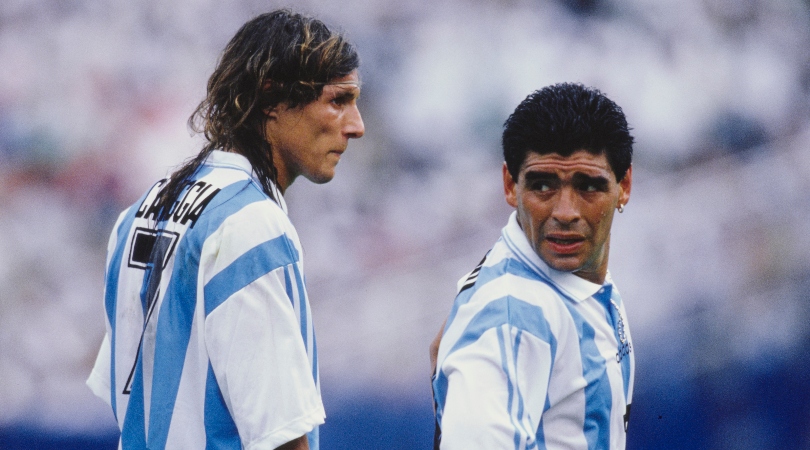
All footballers want to win and sometimes the desire to gain an advantage can lead to rules being broken.
There will always be players willing to employ the dark arts to secure a marginal gain or to seal victory for their teams.
This can also apply off the pitch, with numerous players caught breaking the rules in training or even outside of football. Sometimes, it is part of their genius or what makes them great.
Here, a look at some high-profile examples of footballers who famously broke rules in different ways during their careers...
32. Ole Gunnar Solskjaer
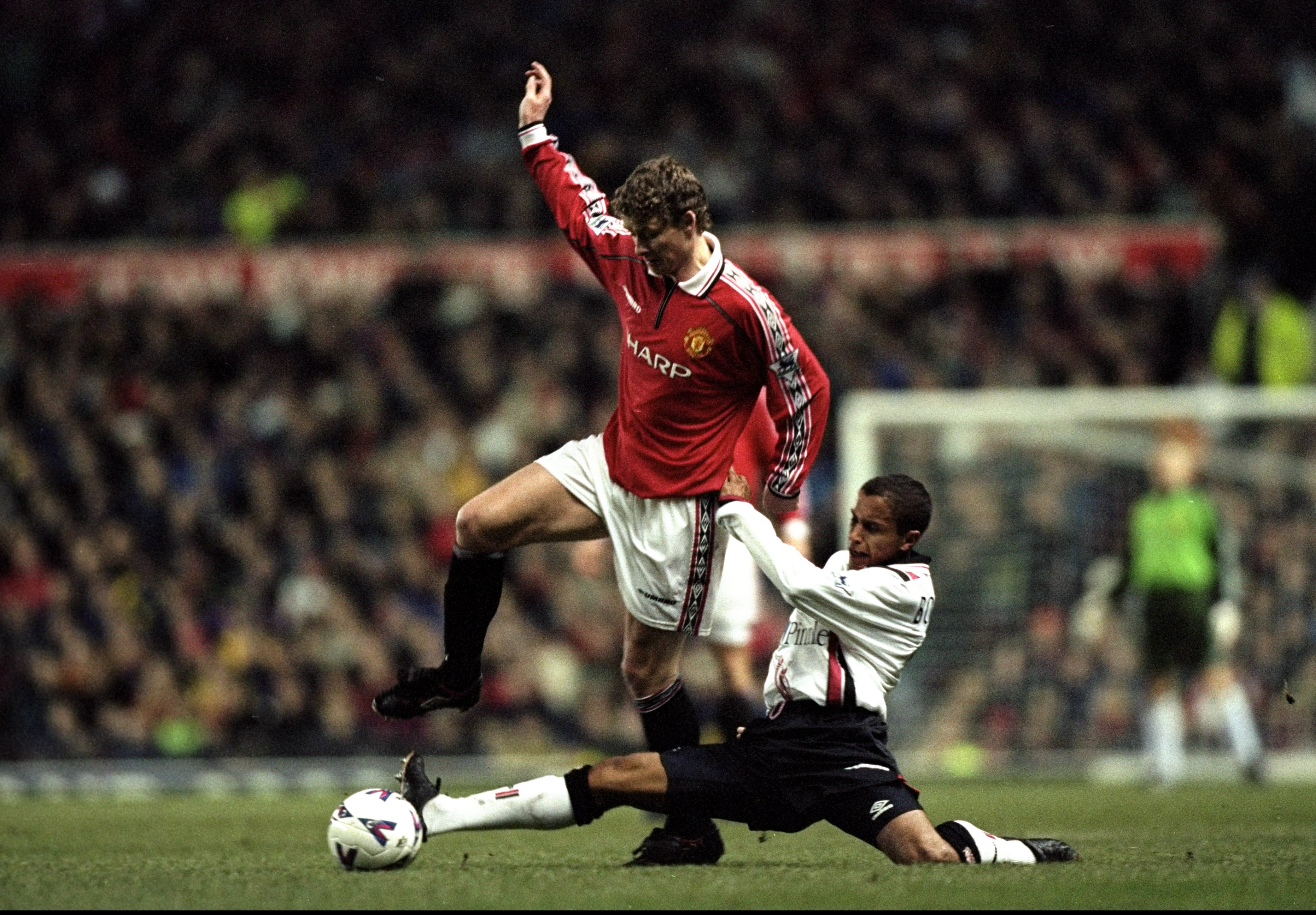
Ole-Gunnar Solskjaer spent 11 seasons at Manchester United and scored 126 goals in 366 games for the Red Devils, including an epic later winner in the 1999 Champions League final against Bayern Munich.
Solskjaer's red card against Newcastle in 1998 has also gained legend status. Norwegian striker chased down Magpies midfielder Rob Lee and scythed him down to prevent a clear goalscoring opportunity late in the game. It earned him a straight red card from referee Uriah Rennie, a standing ovation from the Manchester United fans and the famous "hairdryer treatment" from Sir Alex Ferguson.
31. Joey Barton
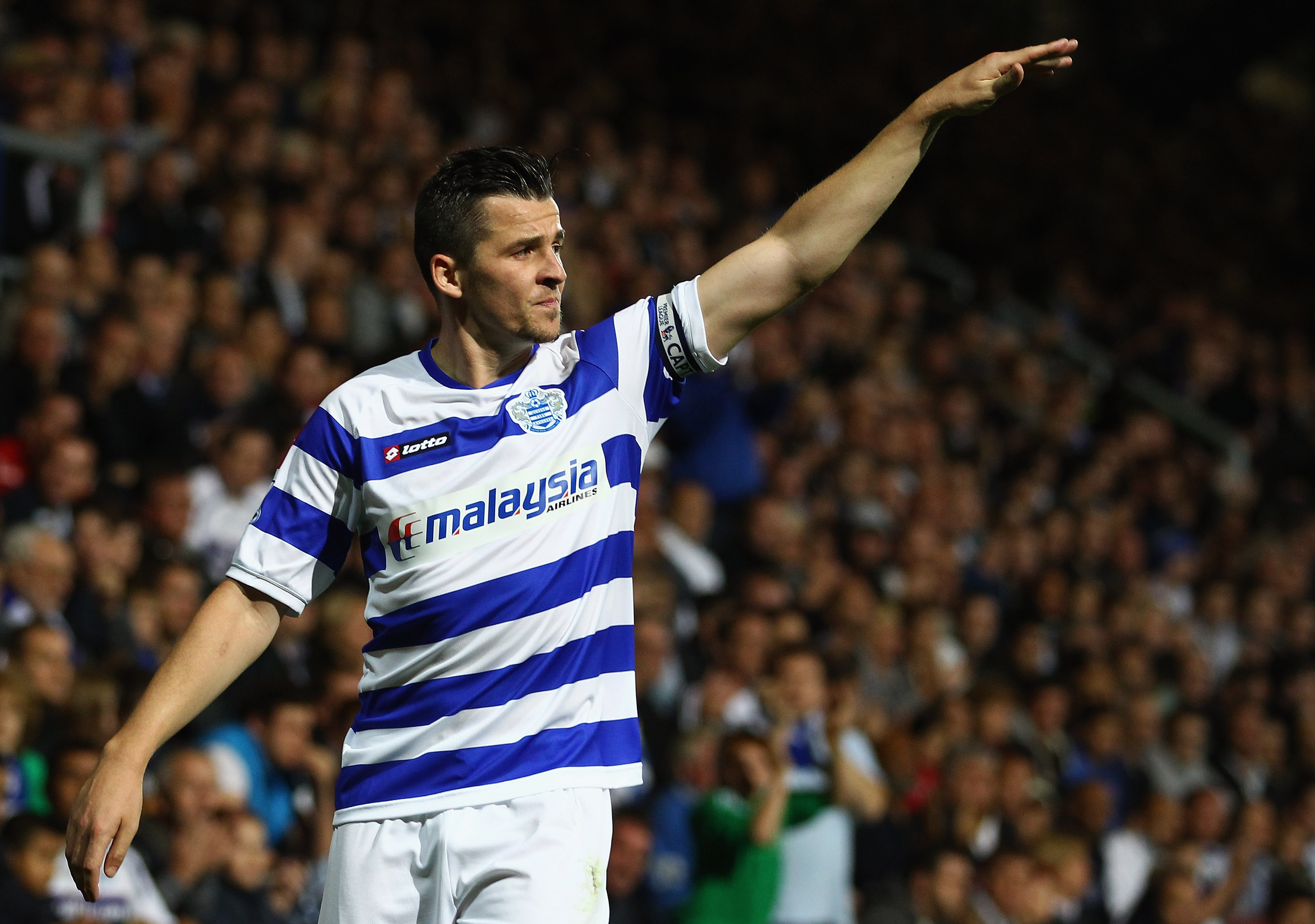
During his career and also since his retirement from football, Joey Barton has never been too far away from controversy.
The former midfielder has spent time in prison for assault and was Involved in numerous violent incidents in his playing days. And more recently, he has received criticism for his controversial comments on female footballers and pundits. His biggest ban came from betting, though: he was alleged to have placed 1,260 bets between 2006 and 2016, in a huge breach of FA regulations. He was suspended for 18 months.
30. Juanito
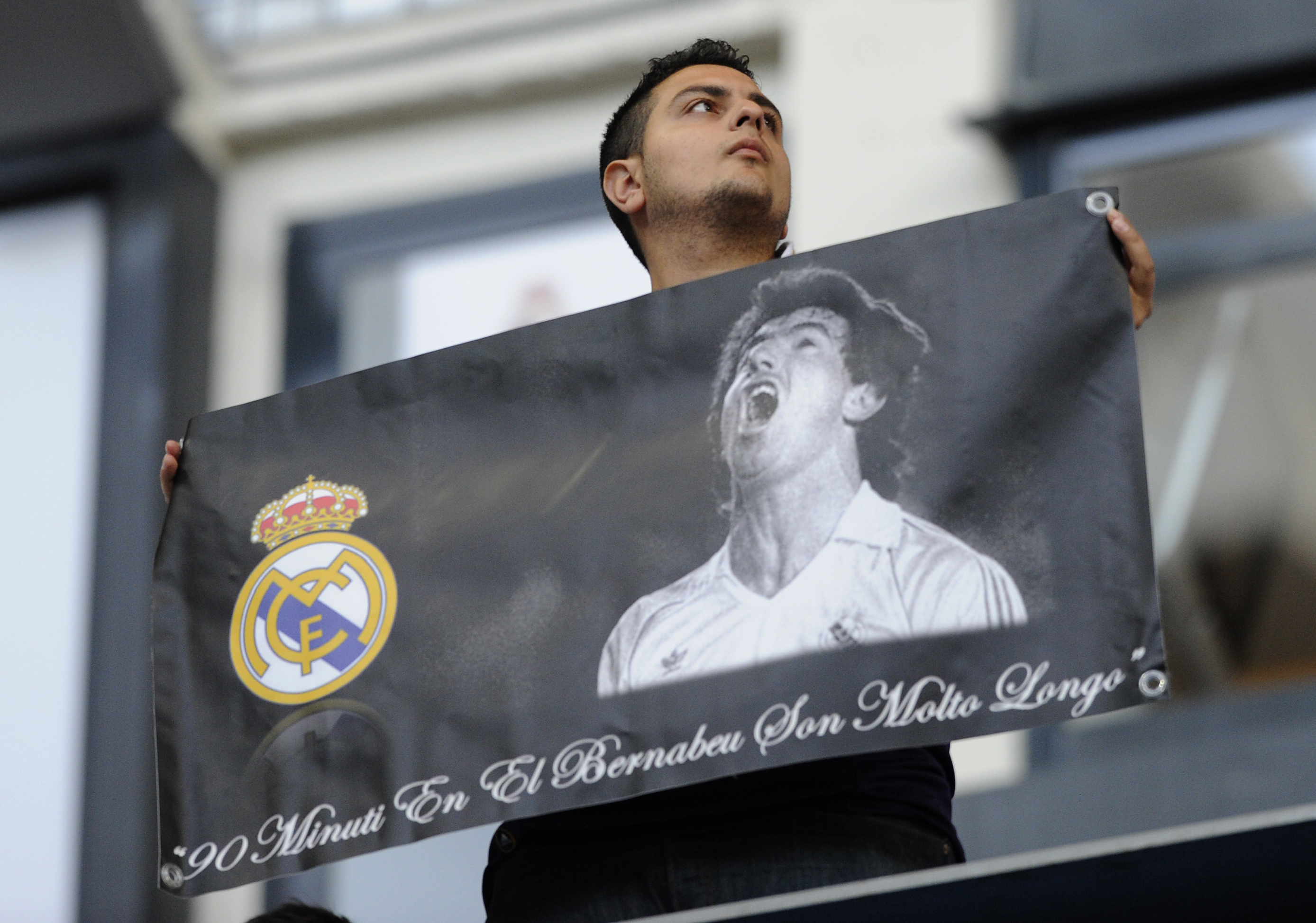
Juanito is a Real Madrid legend and a player who is remembered fondly to this day at the Santiago Bernabeu, having tragically passed away in a car accident at the age of just 37.
An excellent dribbler who won five La Liga titles and two UEFA Cups with Madrid, he was also a controversial character. In 1978, Juanito was banned for two years from European competitions after assaulting referee Adolf Prokop in a game against Grasshoppers. In 1987, he was suspended for four years after deliberately stamping on Lothar Matthaus' face in a game against Bayern Munich.
29. Ashley Cole
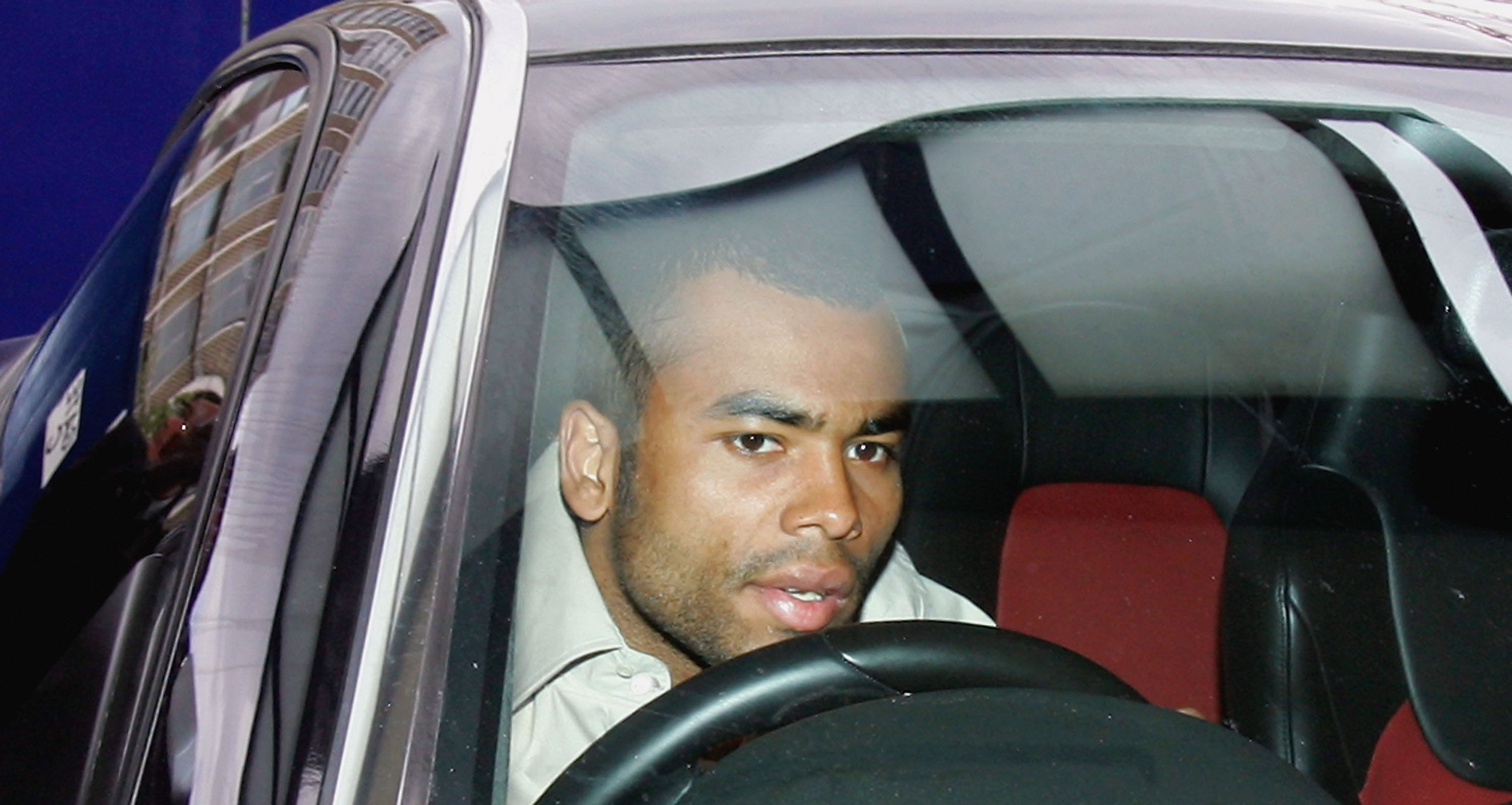
Ashley Cole was fined by the Premier League after an illegal meeting with Chelsea in 2005, but moved from Arsenal to the Blues the following year.
The former England left-back claimed he had been left "trembling with anger" after Arsenal offered him wages of £55,000 per week and earned the nickname "Cashley" from furious Gunners fans, who waved fake money at him on his return to the Emirates Stadium.
28. Paul Gascoigne
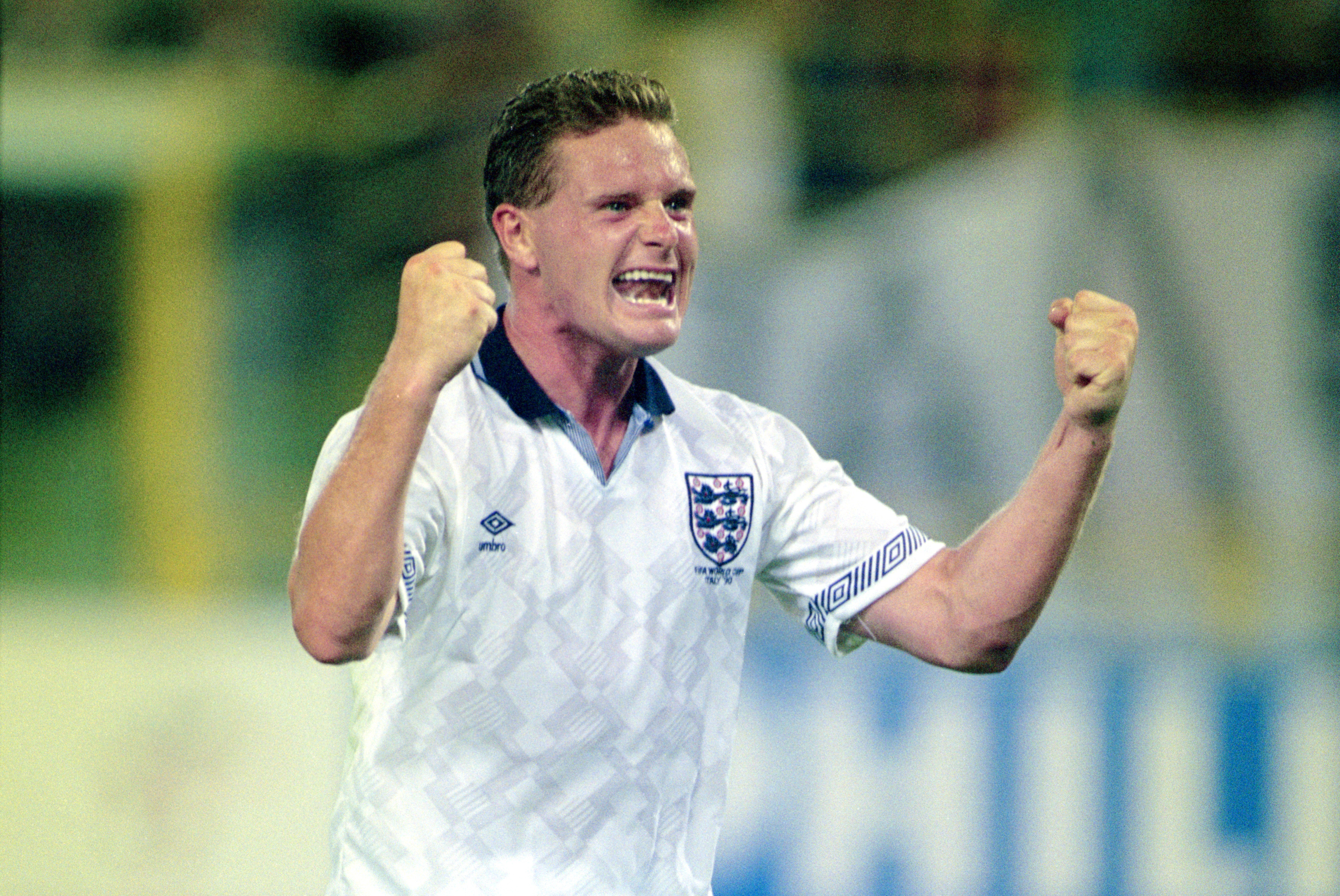
Paul Gascoigne is one of the most exciting players ever produced by England, but the midfielder was never far away from controversy, with numerous stories of indiscipline throughout his career.
Gascoigne, who fought alcohol addiction even in his playing days, was left out of the 1998 World Cup by Glenn Hoddle because he was not in shape and famously smashed up the manager's hotel room in anger. He also got in trouble for an infamous flute celebration during his time at Rangers, which brought death threats and a big fine. Gazza claimed he was unaware of its sectarian connotations and symbolic association with the Orange Order.
27. Fernando Redondo
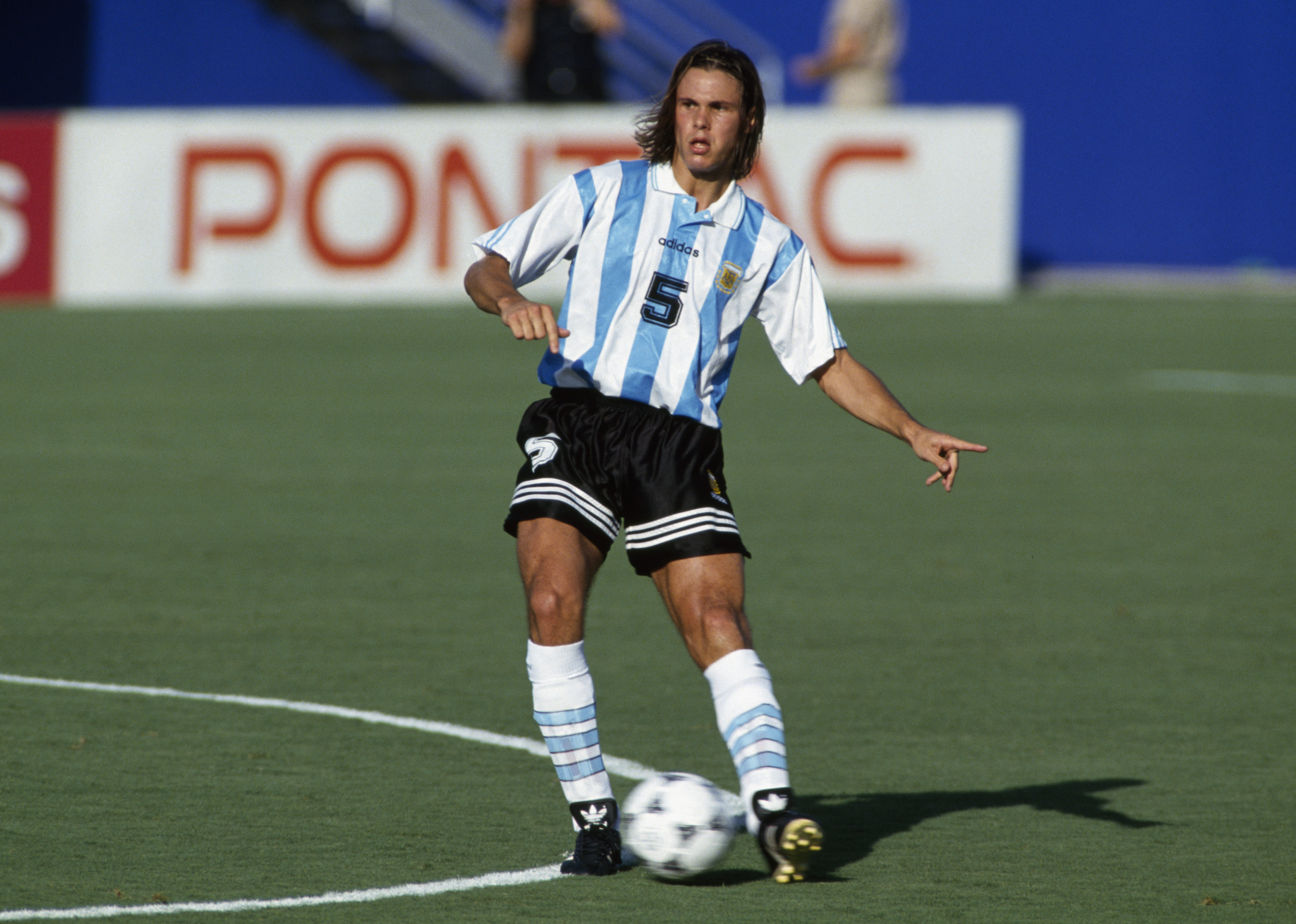
Argentina's coach at the 1998 World Cup was their legendary defender Daniel Passarella, who had some strange ideas. Passarella believed long hair was an interference for players and demanded short trims from the members of his squad.
Star striker Gabriel Batistuta agreed to cut his hair, but Claudio Caniggia and Fernando Redondo did not and were left out. The latter was a Champions League winner with Real Madrid and was later voted into an AFA all-time XI. He really should have been there.
26. Denis Cheryshev
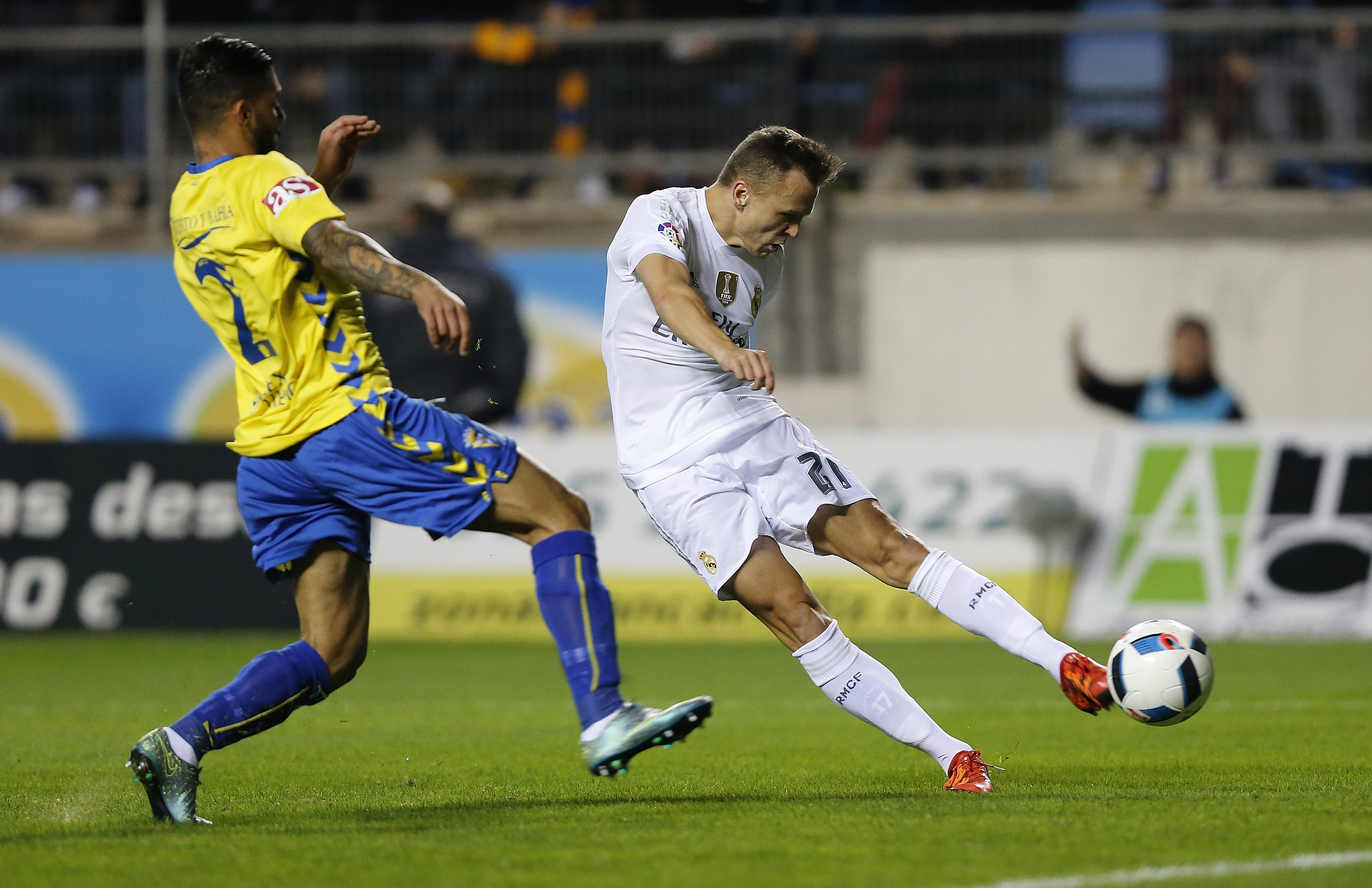
Denis Cheryshev was born in Russia but came through the youth ranks at Real Madrid and scored his first competitive goal for Los Blancos in a Copa del Rey clash against Cadiz in December 2015.
However, he should not have been playing at all, having picked up three yellow cards in the cup competition the previous season while on loan for Villarreal. Madrid were duly thrown out of the Copa del Rey and Cheryshev went on to play just seven games for the club.
25. Kepa Arrizabalaga
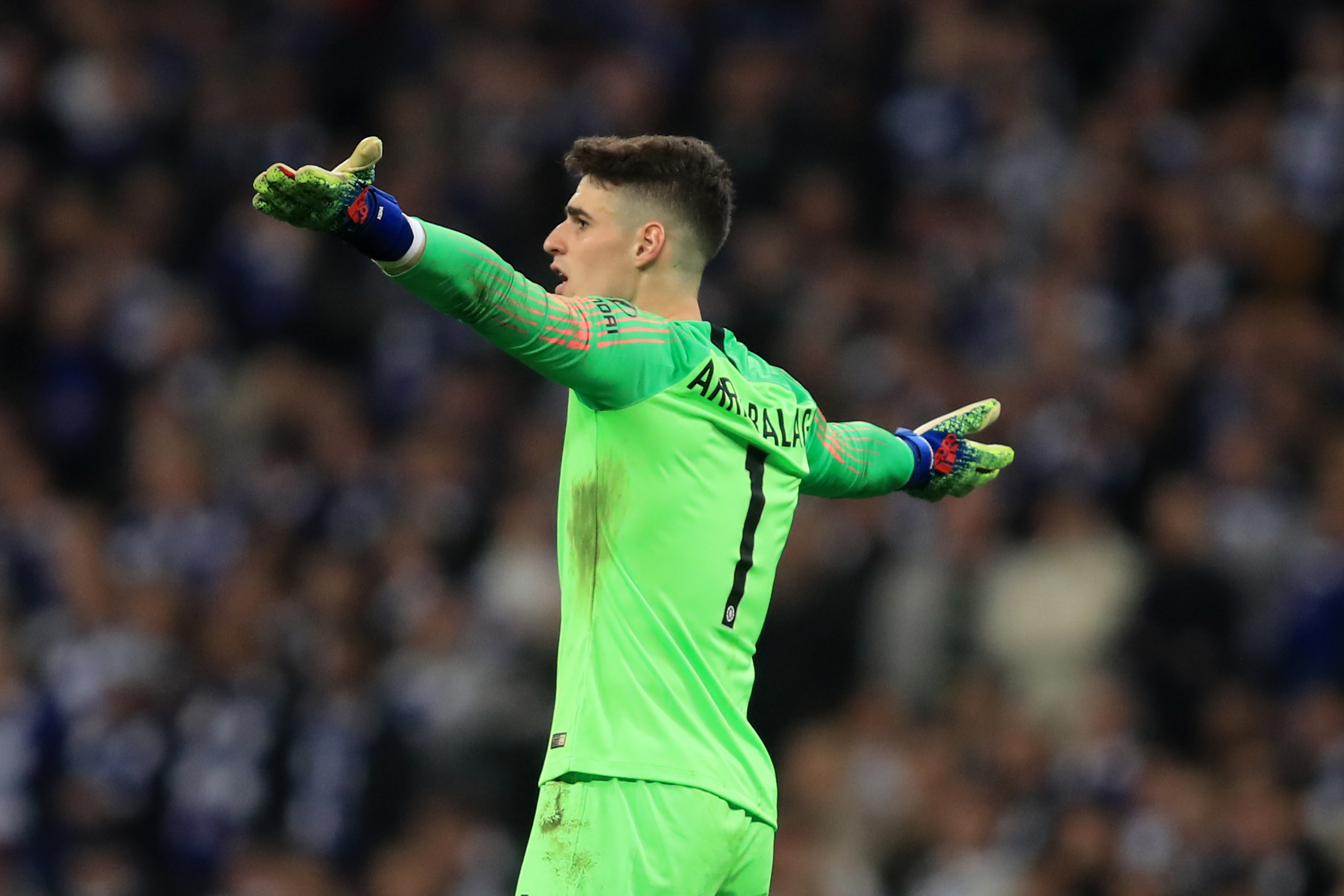
Kepa Arrizabalaga became the world's most expensive goalkeeper when he signed for Chelsea from Athletic Club for £71.6 million in the summer of 2018.
But the Basque caused controversy as he refused to be substituted by Maurizio Sarri in the 2019 League Cup final. The Italian had wanted to bring on Willy Caballero for the penalties, but Kepa insisted on staying on. He was fined, but later claimed it was all a misunderstanding. Chelsea lost to Manchester City in the shootout.
24. Dickson Etuhu
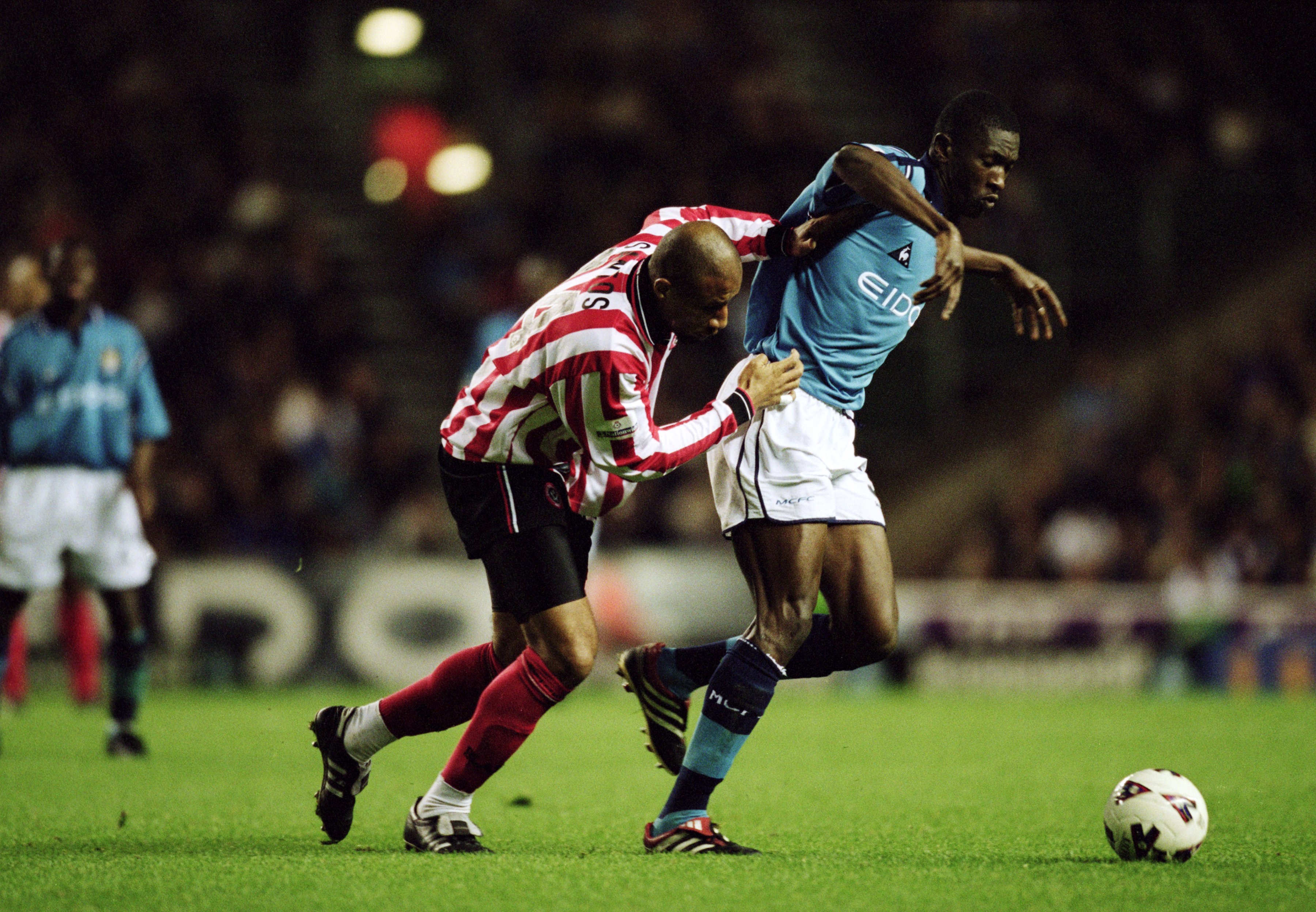
Born in Nigeria, Dickson Etuhu grew up in London and started his career with Manchester City.
The defensive midfielder went on to play for a number of other English clubs, including Sunderland and Fulham, and represented Nigeria at international level. Later in his career, he played in Sweden and was found guilty of match-fixing in 2019. Etuhu was banned for five years in 2020.
23. Sergio Ramos
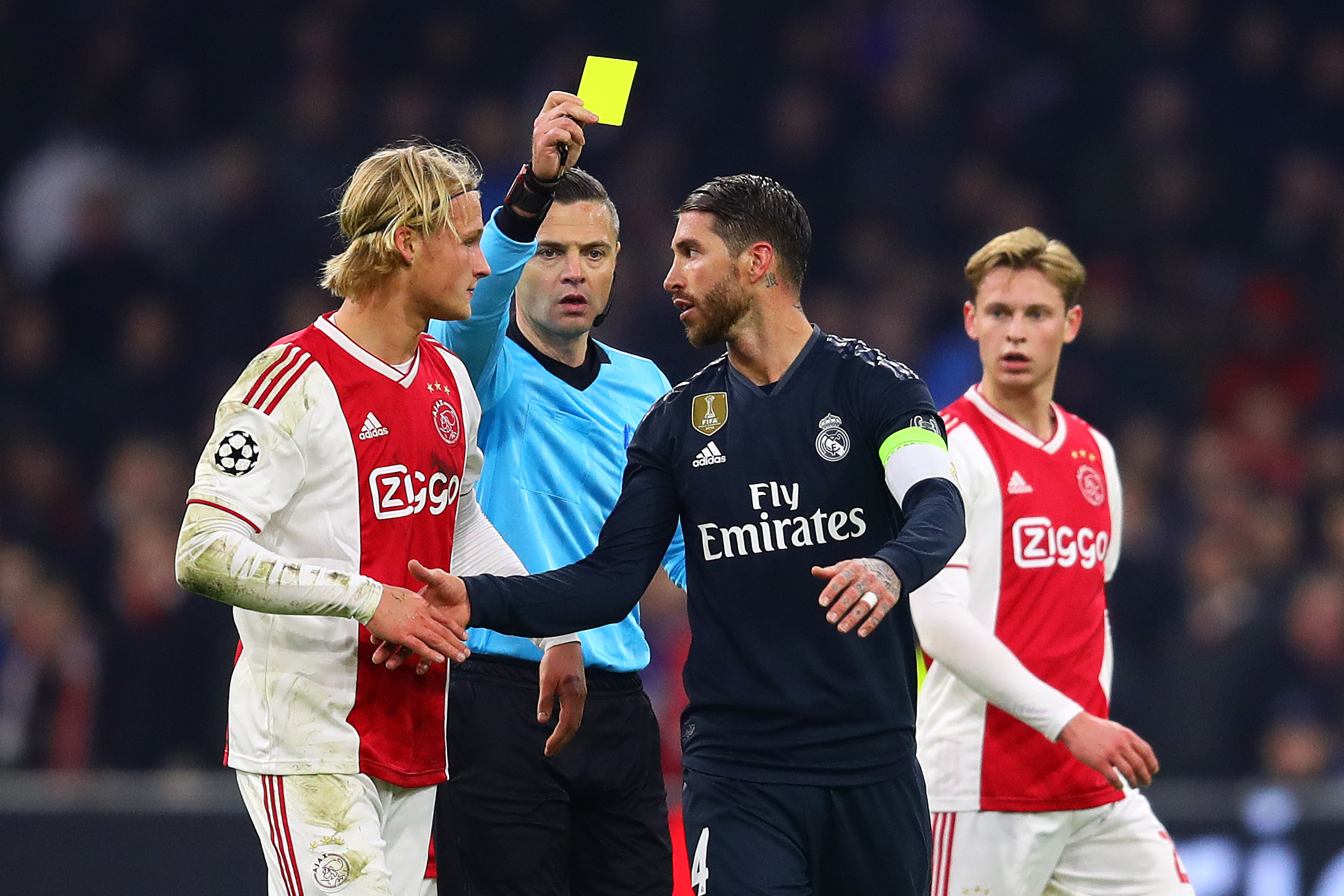
Sergio Ramos thought he was being smart by getting himself deliberately booked against Ajax in the Champions League in February 2019.
Admitting it to the media after the game in Amsterdam was less intelligent, though. UEFA investigated and gave the defender an additional one-match ban. And without their captain, Madrid were thrashed 4-1 in the second leg at home.
22. Garrincha
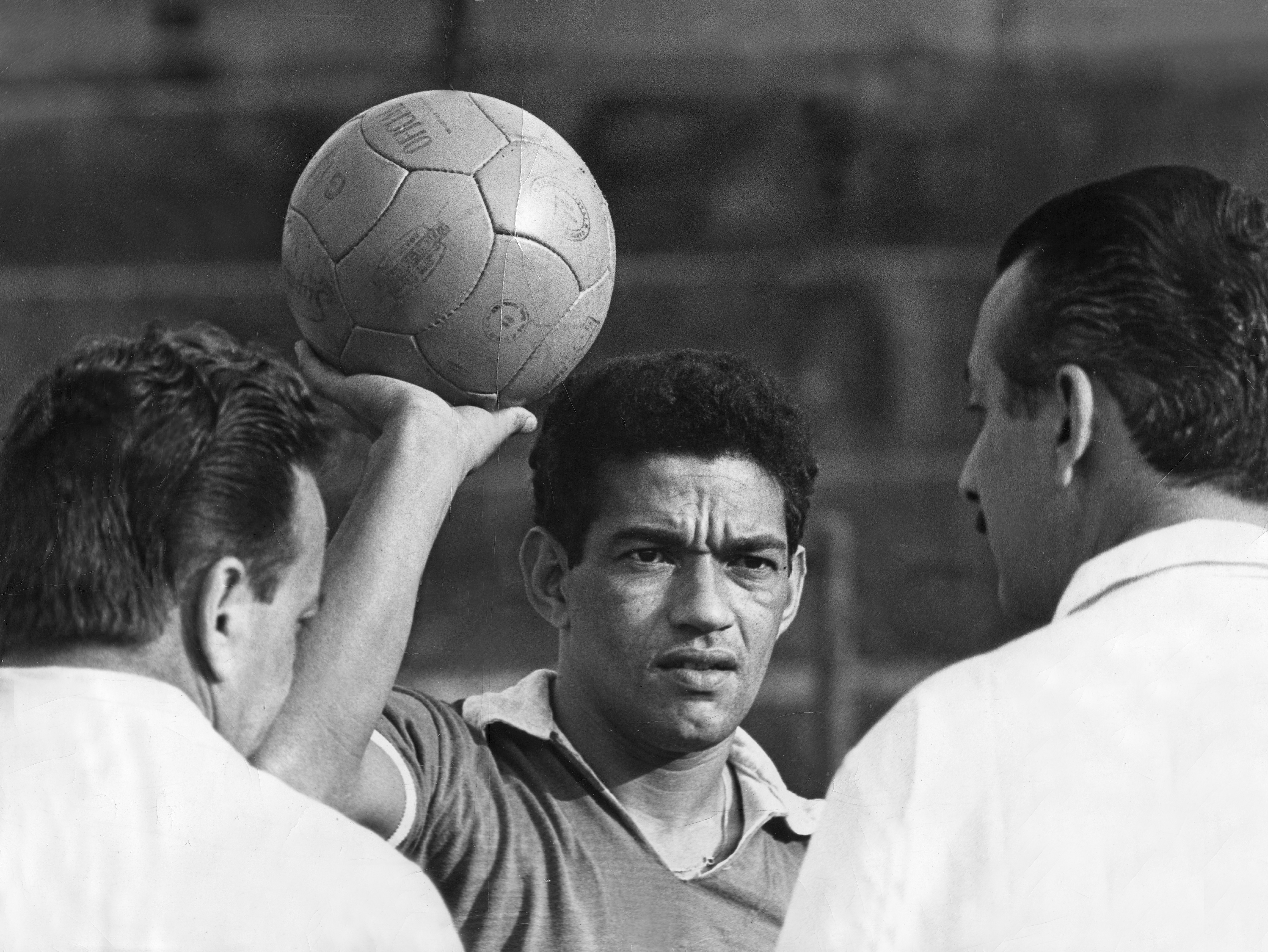
Garrincha didn't care about rules. He didn't care about training, either. Between weekend matches, the brilliant Brazilian winger would go on huge drinking binges with his friends and Botafogo often had to send club officials out to drag him back.
An alcoholic and a womaniser, Garrincha played football to enjoy himself and won two World Cups (in 1958 and 1962) before a decline as the drinking took its toll on his body. He died at the age of just 49.
21. Carlos Tevez
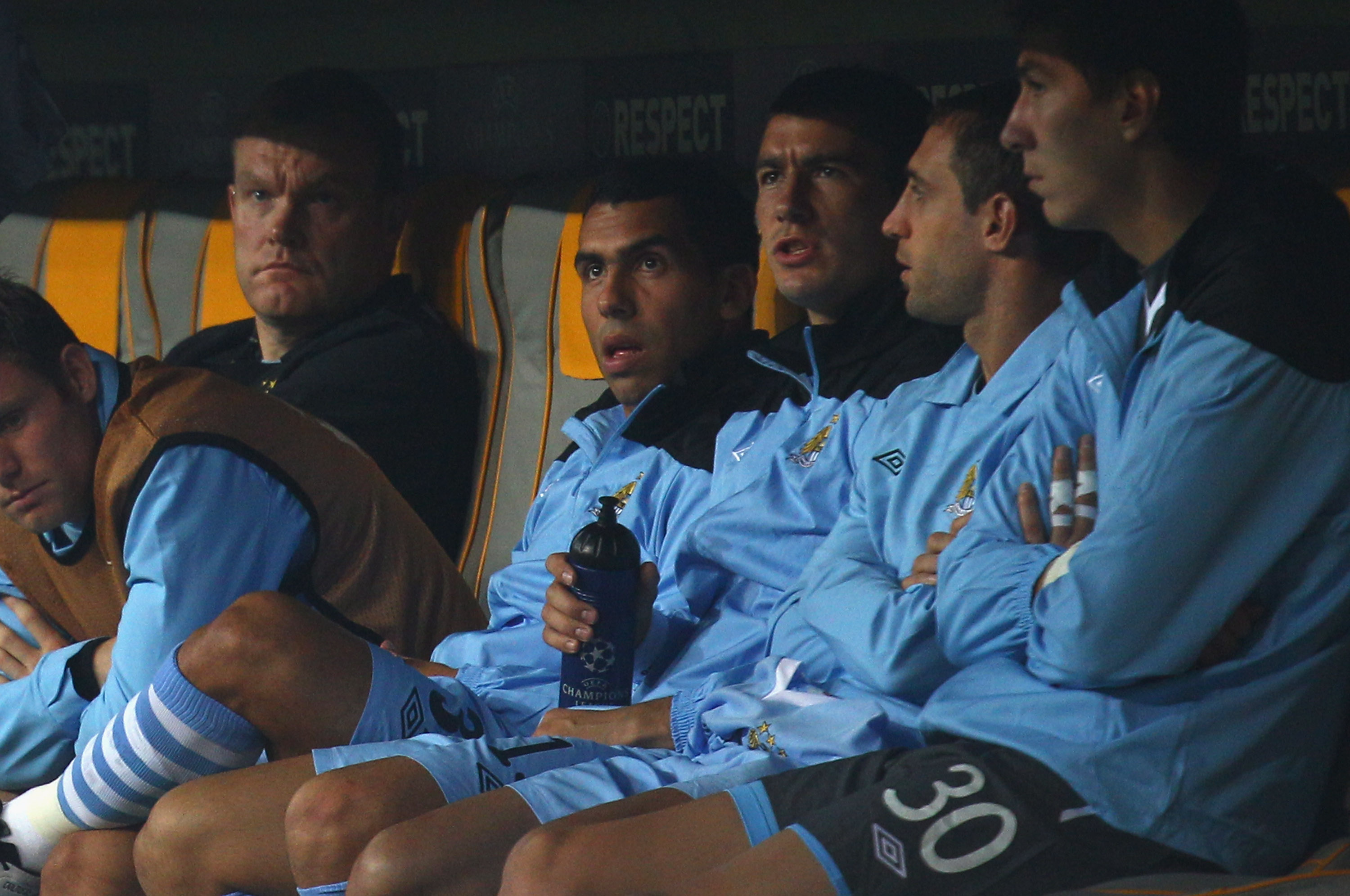
Carlos Tevez delighted Manchester City fans by snubbing a new contract at Manchester United and crossing the derby divide in 2009.
But those fans will have been less happy when the Argentine forward refused to come on as a substitute in a Champions League clash away to Bayern Munich in September 2011. City were 2-0 down and manager Roberto Mancini asked Tevez to warm up, but he did not move and the Italian was furious. "He refused to go in, he refused to come onto the pitch," Mancini said. "For me it's a bad situation because it is impossible for a player to refuse to play and help the team."
20. Ivan Toney

Ivan Toney's promising career for club and country was interrupted by an eight-month ban for breaches of the FA's betting rules in 2023.
The England striker admitted to 232 breaches, which included repeatedly placing bets on matches his team were involved in and even backing his club to lose on 13 occasions. He returned to action with Brentford in January 2024.
19. Jack Grealish
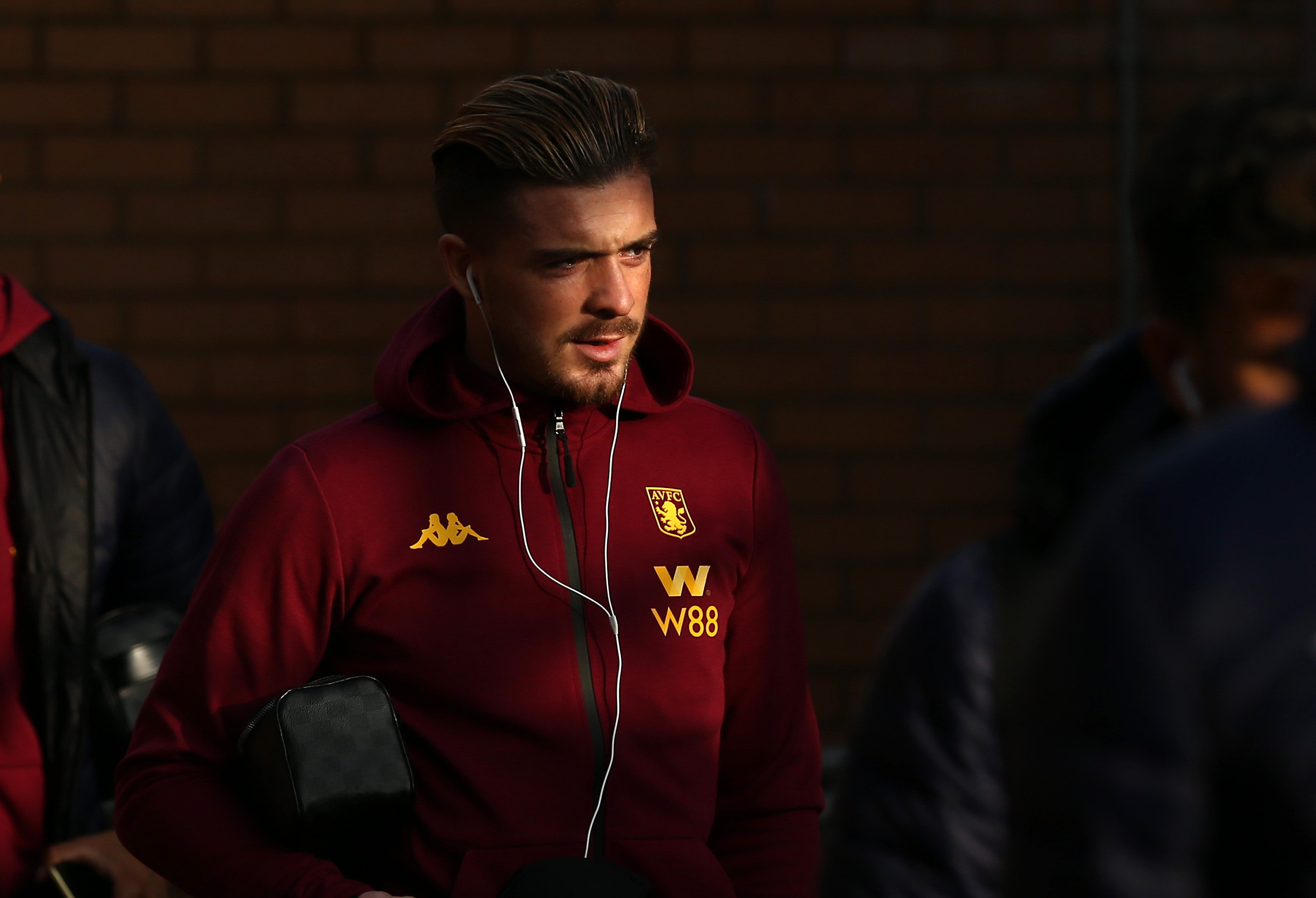
During his time at Aston Villa, Jack Grealish got into trouble when he went out for dinner in a London restaurant with team-mate Ross Barkley during lockdown in December 2020.
It was the second time the England attacker had broken COVID-19 restrictions, having been banned from driving for nine months and fined £82,499 after crashing his Range Rover in March 2020.
18. Adrian Mutu
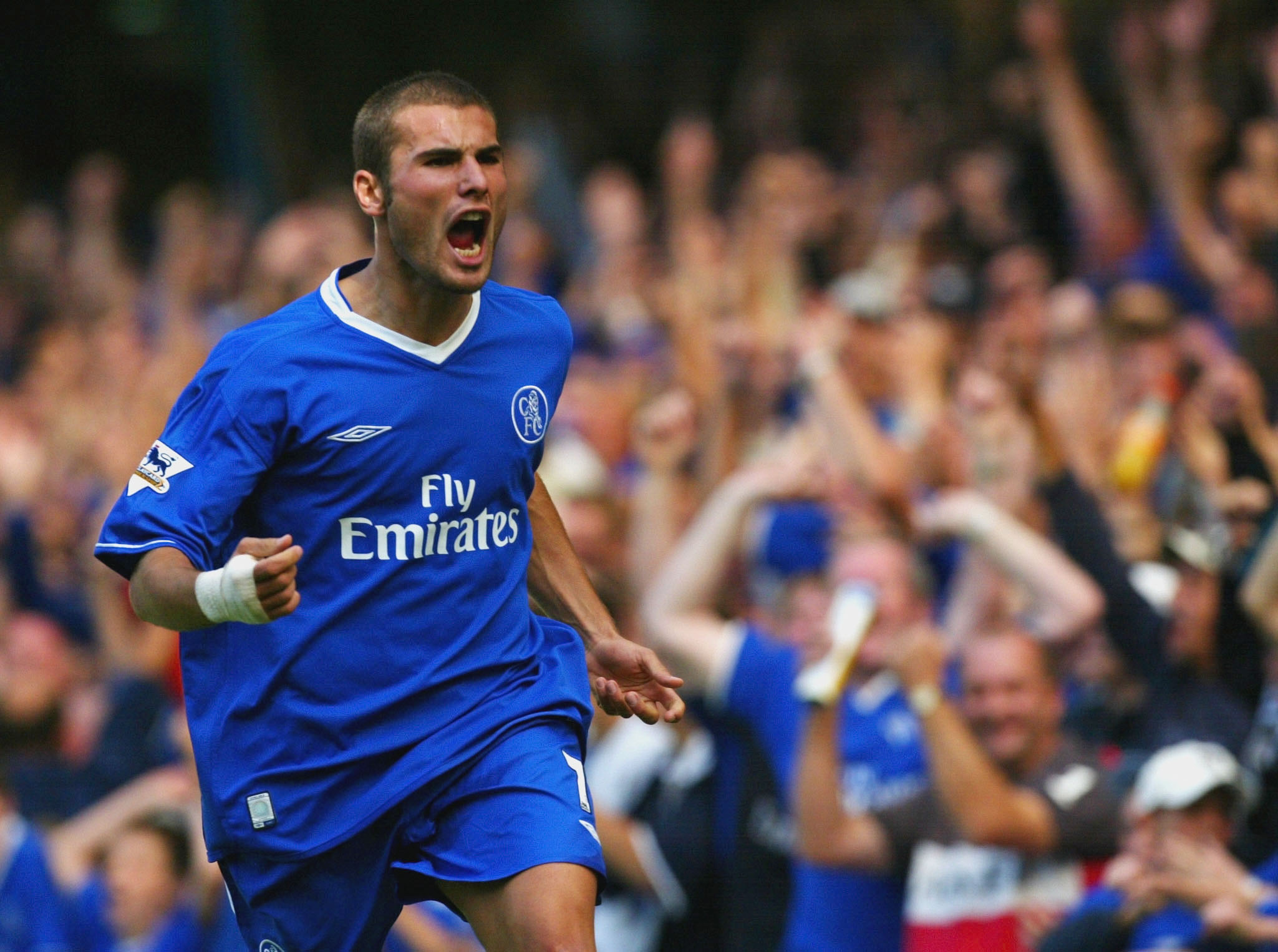
Adrian Mutu arrived at Chelsea amid much fanfare from Parma in 2003, but the hype soon turned to controversy when the Romanian forward was sacked for using cocaine.
Mutu was handed a seven-month suspension and returned to Italy, where he went on to play for Juventus and Fiorentina. He was also ordered to pay a bill of £14.6 million after he was forced to leave Chelsea.
17. Rio Ferdinand
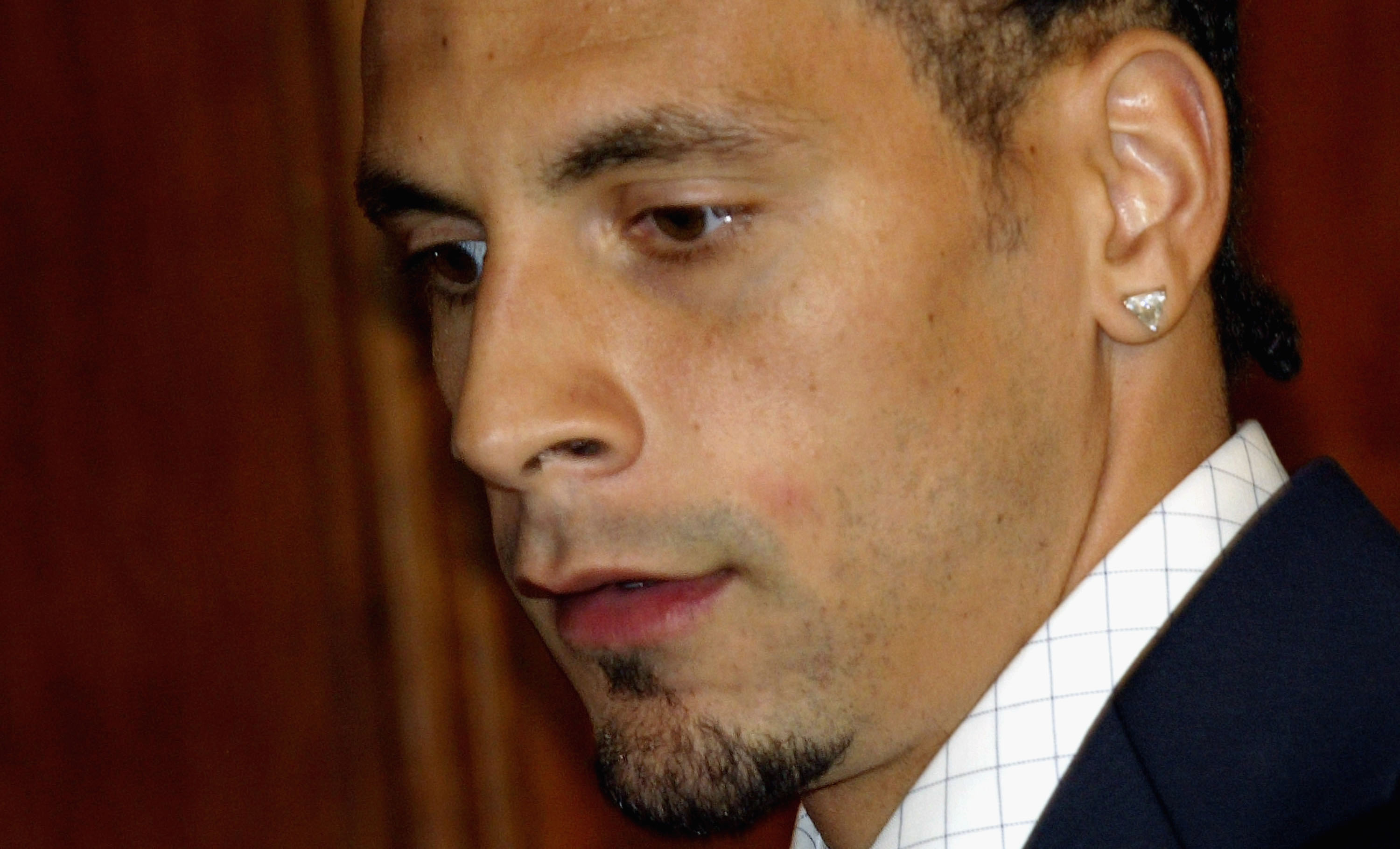
Rio Ferdinand spent 12 years at Manchester United and was hugely successful in Sir Alex Ferguson's great side, winning six Premier League titles and a Champions League crown in an array of silverware.
But there was controversy early in the centre-back's career at Old Trafford as he missed a drugs test and was hit with an eight-month ban and a £50,000 fine. As a result, he ended up missing Euro 2004, but returned to England duty later that year. Ferdinand was also convicted of drink-driving earlier in his career.
16. Marco Materazzi
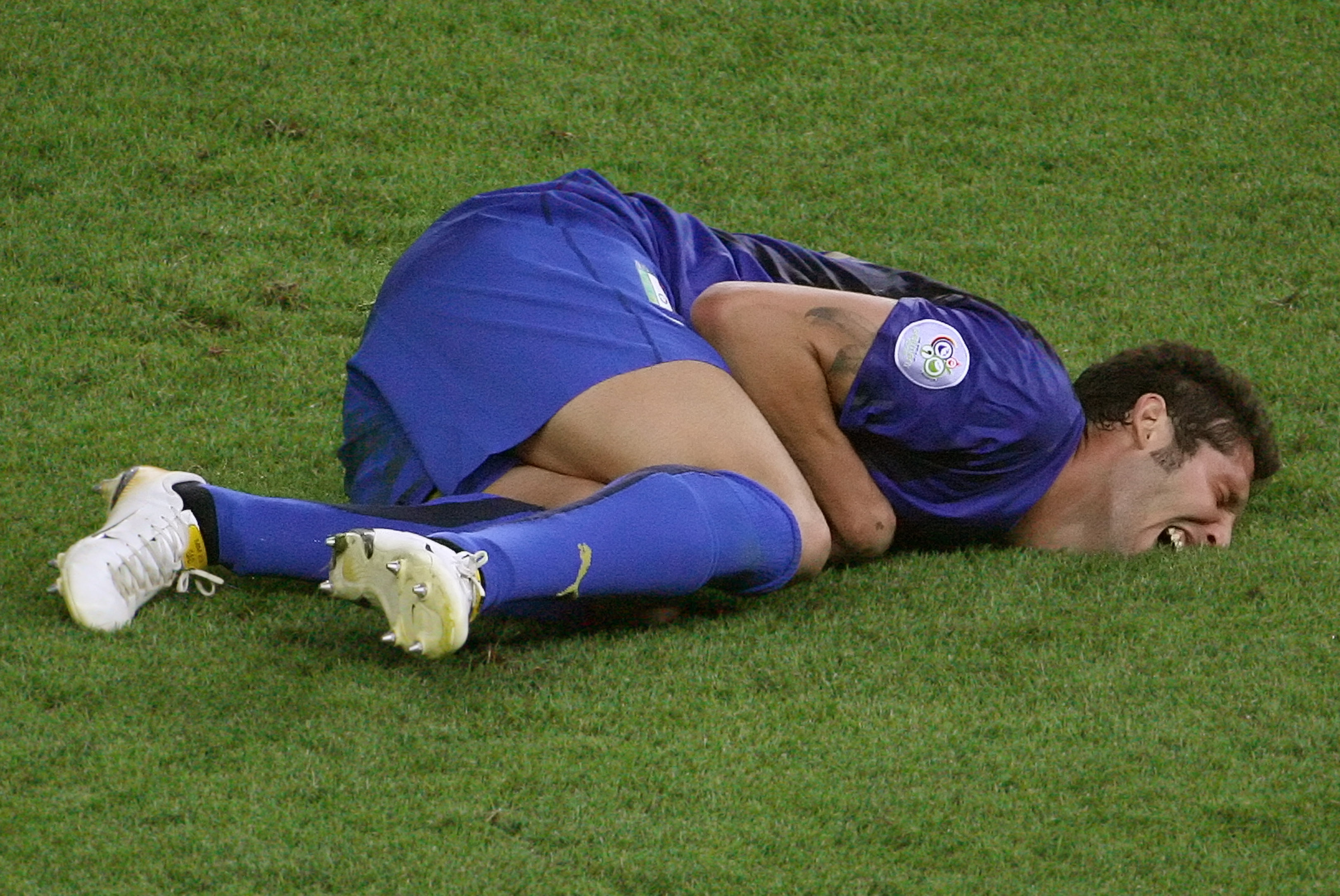
Italy defender Marco Materazzi might see himself as the victim of one of the most famous pieces of aggression in World Cup history, but he was also the instigator.
Materazzi was grounded by a brutal headbutt in the chest by France's Zinedine Zidane in an incident which shocked the world and saw the French legend sent off in shame in his last ever match as a professional. But Materazzi had been winding up Zidane. "I'd rather have your sister than your shirt," he told the French captain. Zidane violently snapped, but Materazzi's role in the incident was also deeply unpleasant.
15. Joao Pinto
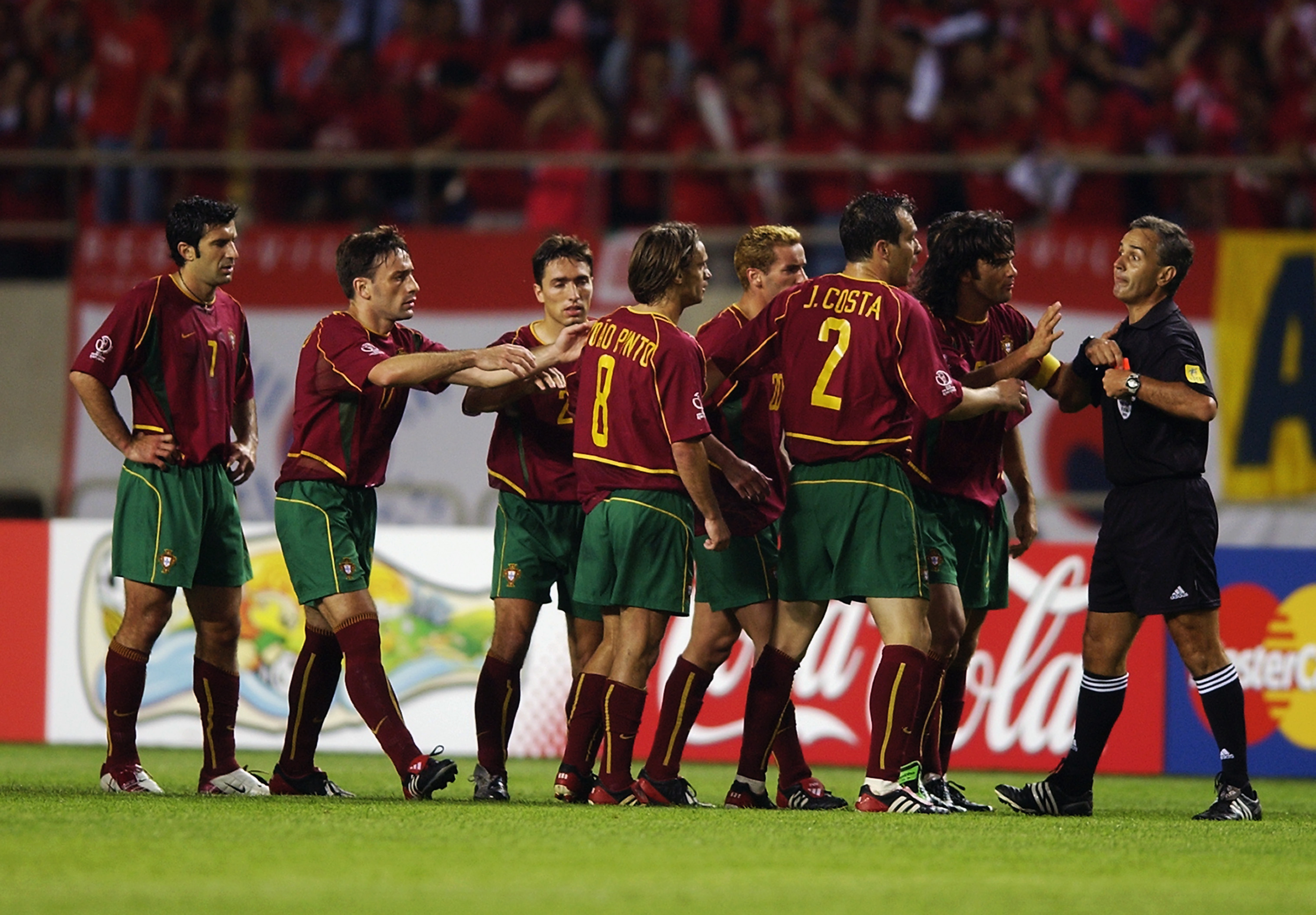
Portugal striker Joao Pinto was given a lengthy ban after punching Argentine referee Angel Sanchez in the stomach following a red card against South Korea at the 2002 World Cup.
Pinto was sent off for a first-half tackle from behind on Park Ji-Sung in his nation's 1-0 defeat. He was suspended for eight months and did not play for Portugal again.
14. Johan Cruyff
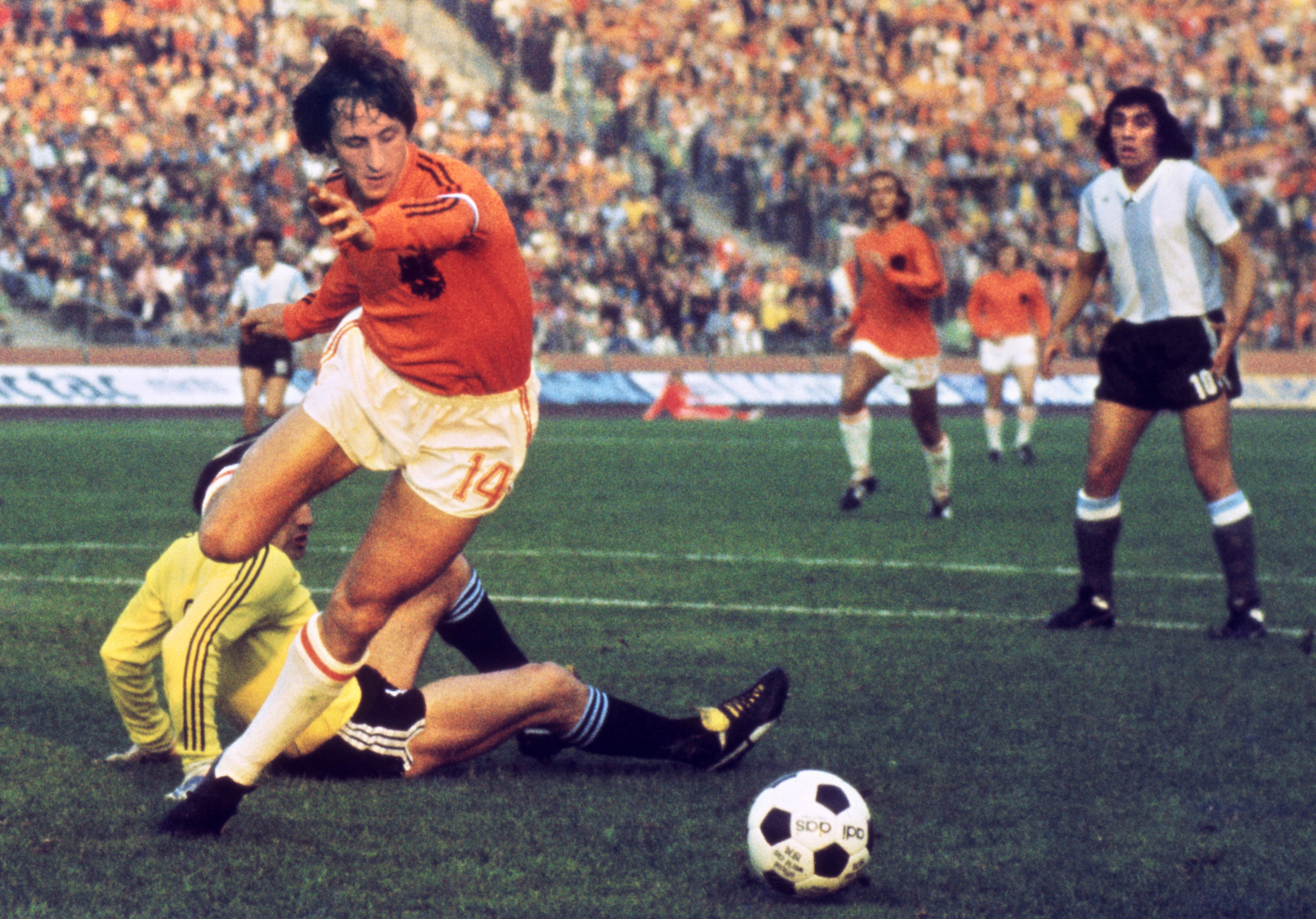
Johan Cruyff was different. One of the game's deepest thinkers, the Dutch legend is arguably the most influential figure in the history of football.
One of the best players ever, Cruyff became a top coach and was also an innovator. He was stubborn, too. At the 1974 World Cup, the Netherlands had agreed a deal to use Adidas shirts, but Cruyff had a contract with Puma and would not back down, so he played in a jersey featuring just two stripes while his team-mates wore three.
13. Mario Balotelli
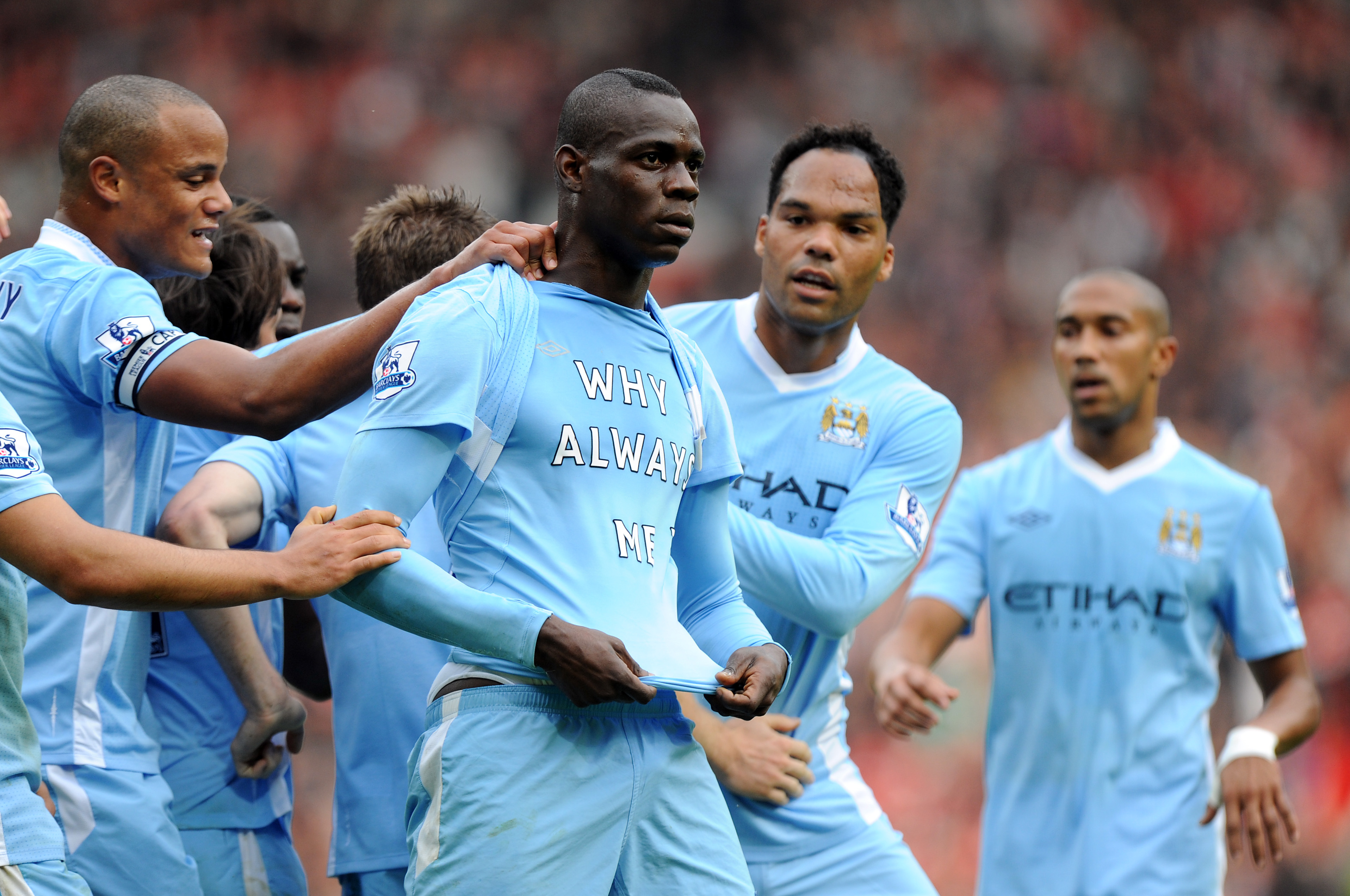
"Why always me?" asked Mario Balotelli via a message on his undershirt after scoring for Manchester City against Manchester United in 2011. Why indeed?
At City alone, the Italy forward fought with his team-mates in training and with manager Roberto Mancini, set his house on fire as fireworks were lit in his bathroom, threw darts at a youth-team player, reportedly ran up £10,000 in car parking fines and was questioned by police after an accident when they found huge bundles of cash in his vehicle.
12. Harald Schumacher
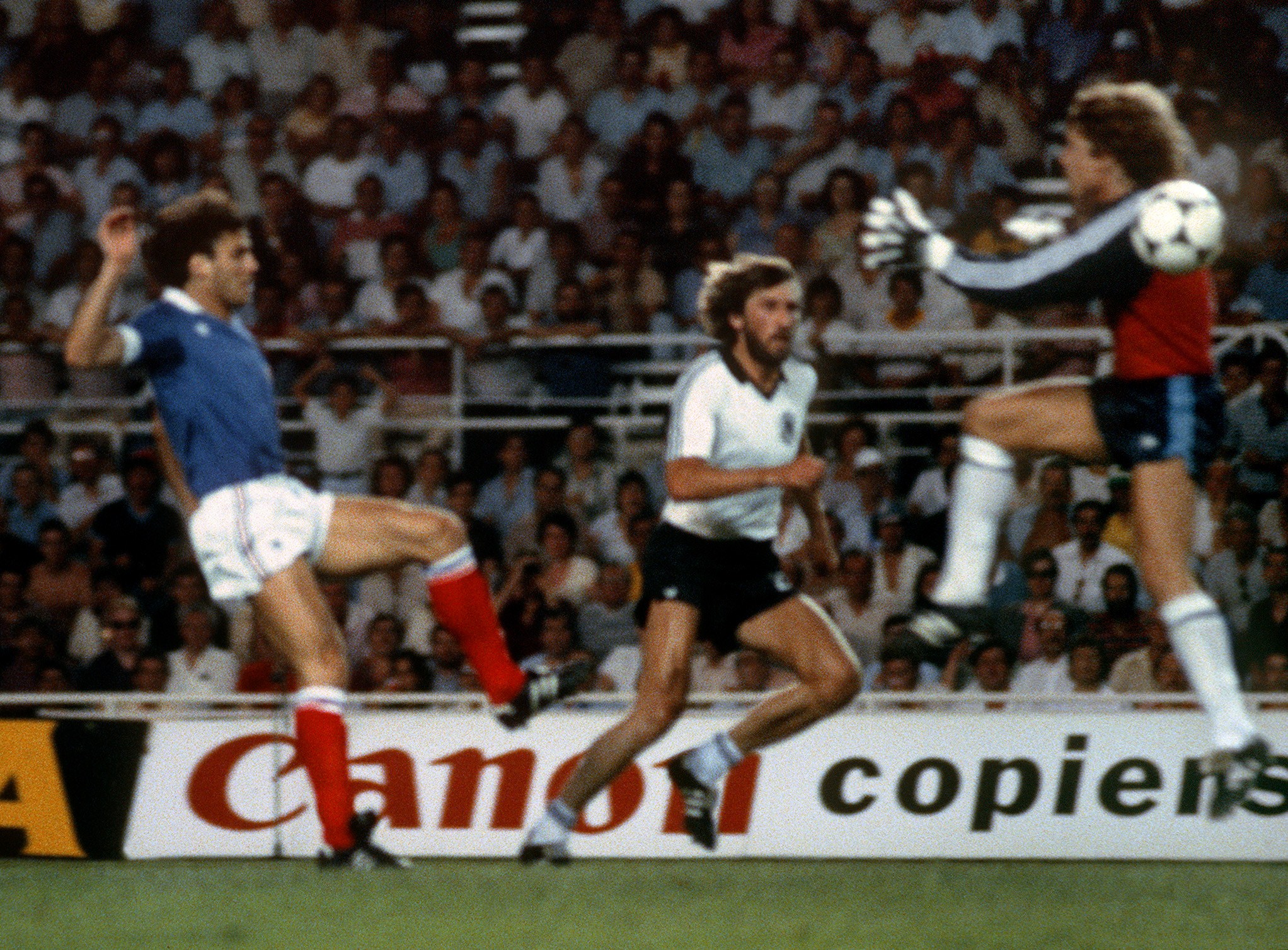
Harald "Toni" Schumacher was German Footballer of the Year in 1984 and 1986 and featured in two World Cup finals for West Germany in the 1980s, but he will always be remembered for his brutal challenge on France's Patrick Battiston.
Schumacher flew past the ball and clattered into Battiston in the semi-finals of the 1982 World Cup, leaving the defender with broken ribs and missing teeth. He also ended up in a coma. The two later reconciled, but the incident is still seen as one of the most controversial in World Cup history and in a French newspaper poll at the time, Schumacher was considered less popular than Adolf Hitler.
11. Romario
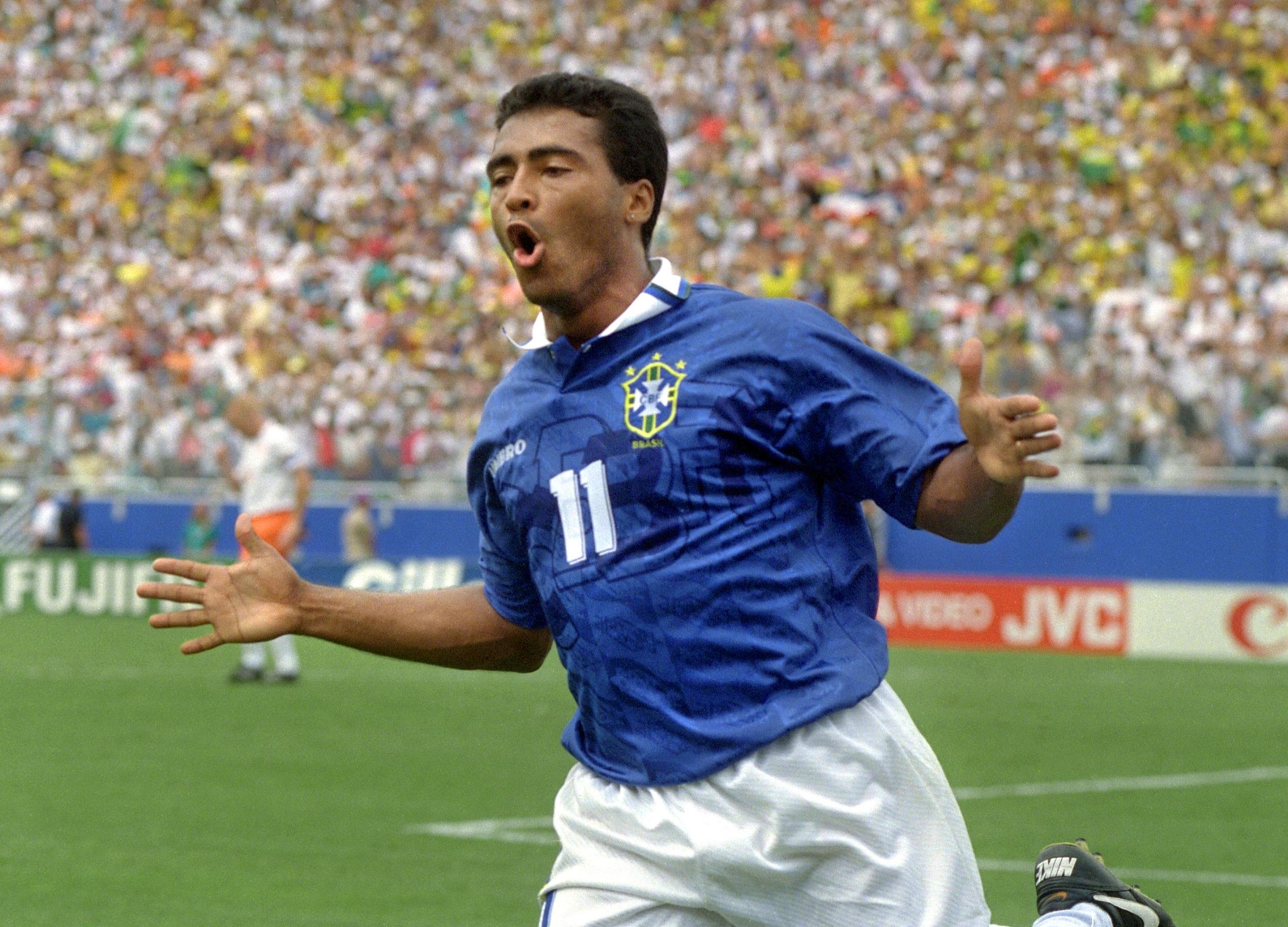
Romario is one of Brazil's best-ever players and was the star, alongside Bebeto, as the South Americans won the 1994 World Cup. But the striker made his own rules.
At Barcelona, he made a pact with coach Johan Cruyff that he could off to Carnaval in Brazil if he scored twice in the club's next match. He did, and promptly asked for his substitution, saying his plane was leaving. But the Catalan club had to send out a search party in Brazil when he didn't report back. In a La Liga game for Barça, he punched Diego Simeone. At Valencia, he refused to run and barely trained. At Flamengo, he was sacked for his persistent partying. And at Fluminense, he attacked a fan who threw six live chickens onto the training pitch in protest at the club's poor form.
10. Frank Rijkaard

Frank Rijkaard is widely considered to be one of football's nice guys, but the Dutch legend lost the plot in the Netherlands' World Cup last-16 clash against West Germany in 1990.
In an ill-tempered match, tackles were flying in all over the place. Rijkaard, upset at being booked, spat in the back of Voller's head after the German striker had been harshly sent off. Soon, Rijkaard was off too and the two argued as they left the pitch. Rijkaard, nicknamed "llama" following the spitting incident, later apologised and the pair even starred together in a butter advert on television.
9. Claudio Cannigia
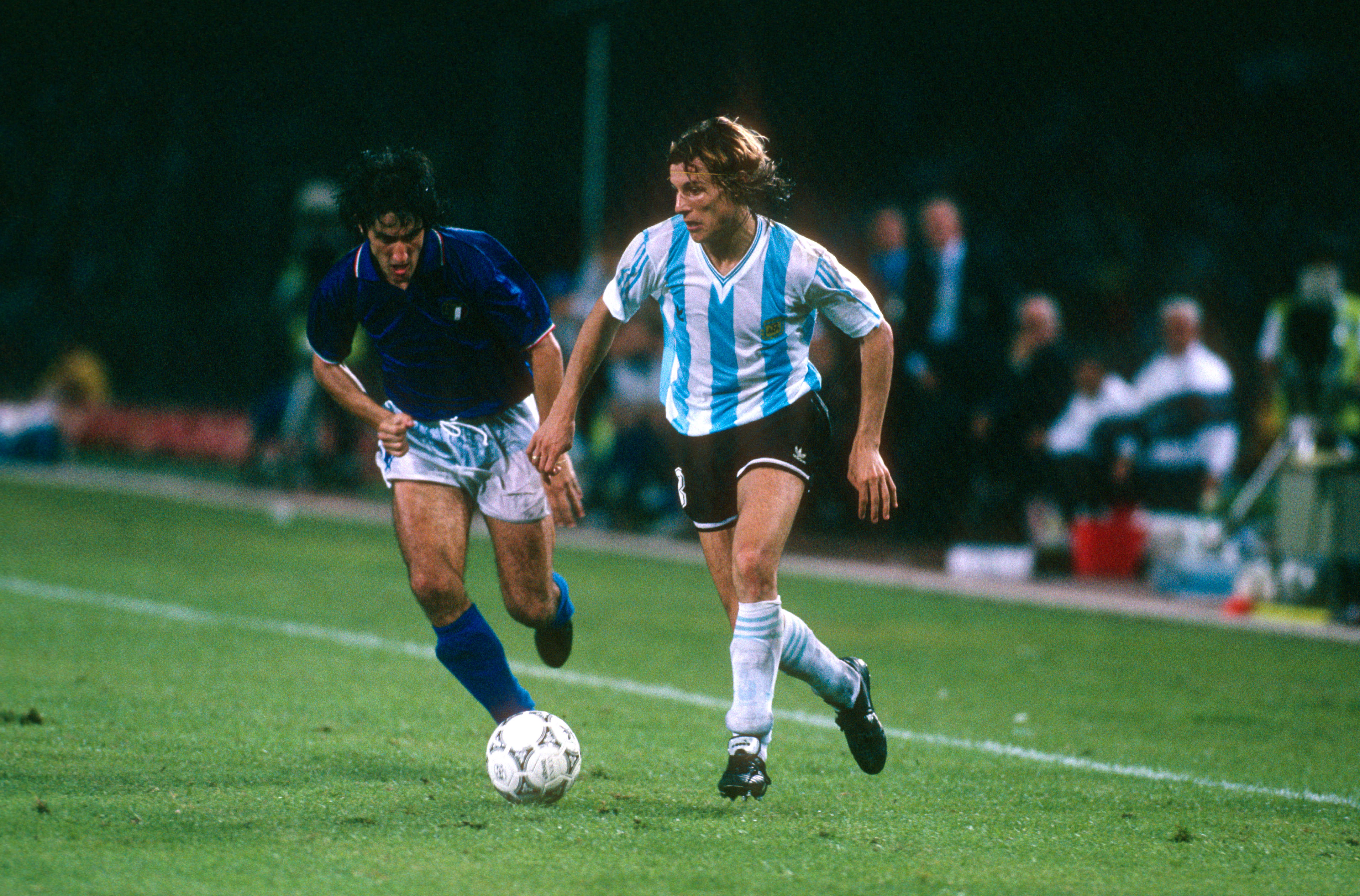
Claudio Caniggia and Diego Maradona formed a formidable partnership in attack for Argentina and also for Boca Juniors in the 1990s.
By that time, both players had tested positive for cocaine and earned lengthy bans. Maradona's failed test brought an end to his time at Napoli in 1991, while Cannigia's came during a spell at Roma two years later and a 13-month suspension saw him miss the 1993 Copa America. In 2002, Caniggia was also shown a red card for insulting the referee in Argentina's game against Sweden, becoming the first player to be sent off from the bench in a World Cup.
8. Rivaldo
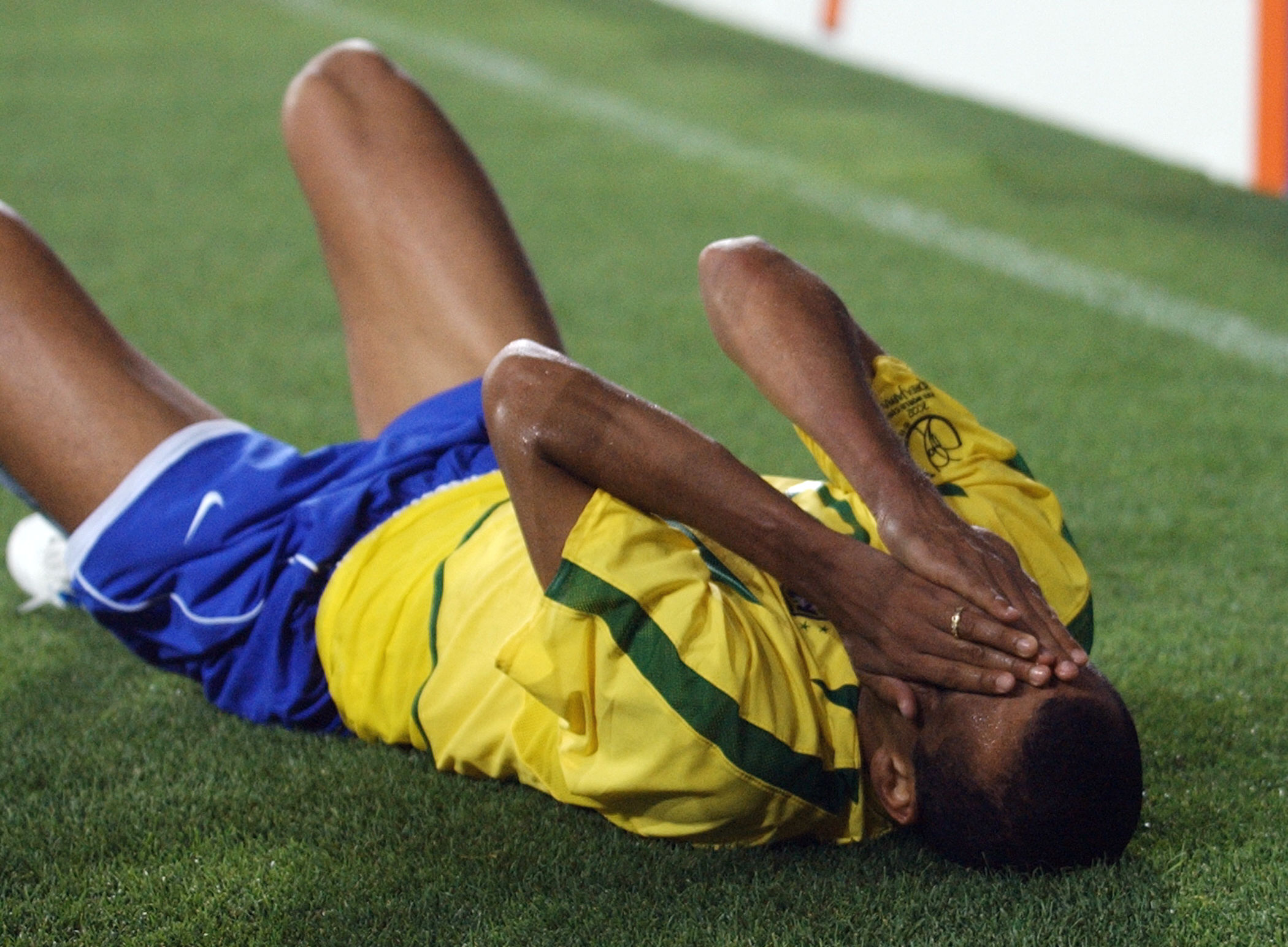
Brazil won a late corner in their World Cup 2002 group game against Turkey and Hakan Unsal kicked the ball forcefully at Rivaldo, who had been wasting time.
The ball struck the Brazilian on the thigh, but he collapsed in a heap, holding his face. Unsal was shown the red card, but boos followed from the crowd when the incident was shown on the big screens. Rivaldo was hit with a big fine by a disciplinary committee, but said: "I'm calm about the punishment. I am not sorry about anything. I was both the victim and the person who got fined."
7. Roberto Rojas
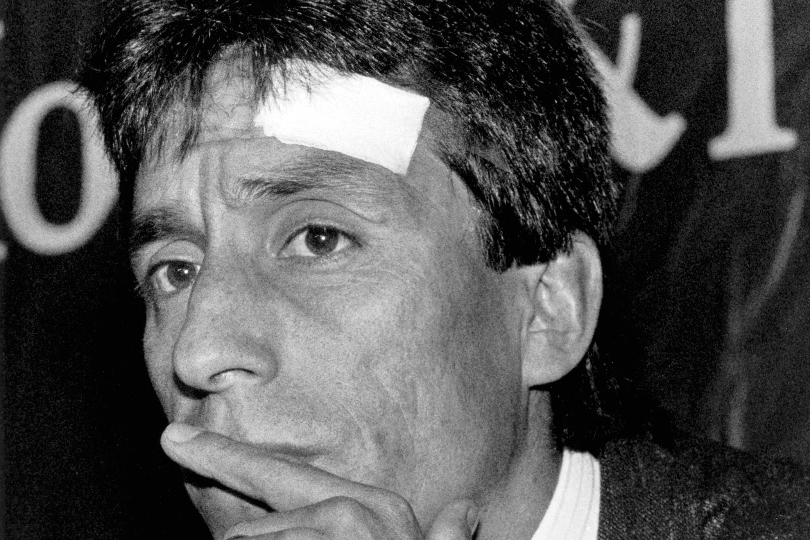
With 20 minutes left to play in a crucial World Cup qualifier against Brazil at the Maracana in 1989 and his side a goal down, Chile goalkeeper Roberto Rojas went down holding his head.
Rojas claimed to have been hit by a firework which had been thrown onto the pitch and was smouldering about a yard away. The goalkeeper, his head bloodied, was carried off on a stretcher and the match was unfinished. Chile, trailing 1-0, had needed a win to keep hopes of World Cup qualification alive and Rojas had inflicted the head wound with a razor blade hidden inside his glove. Chile were banned from the 1994 World Cup, while Rojas was suspended for life – along with the coach and the team doctor. He received a pardon in 2001.
6. Thierry Henry
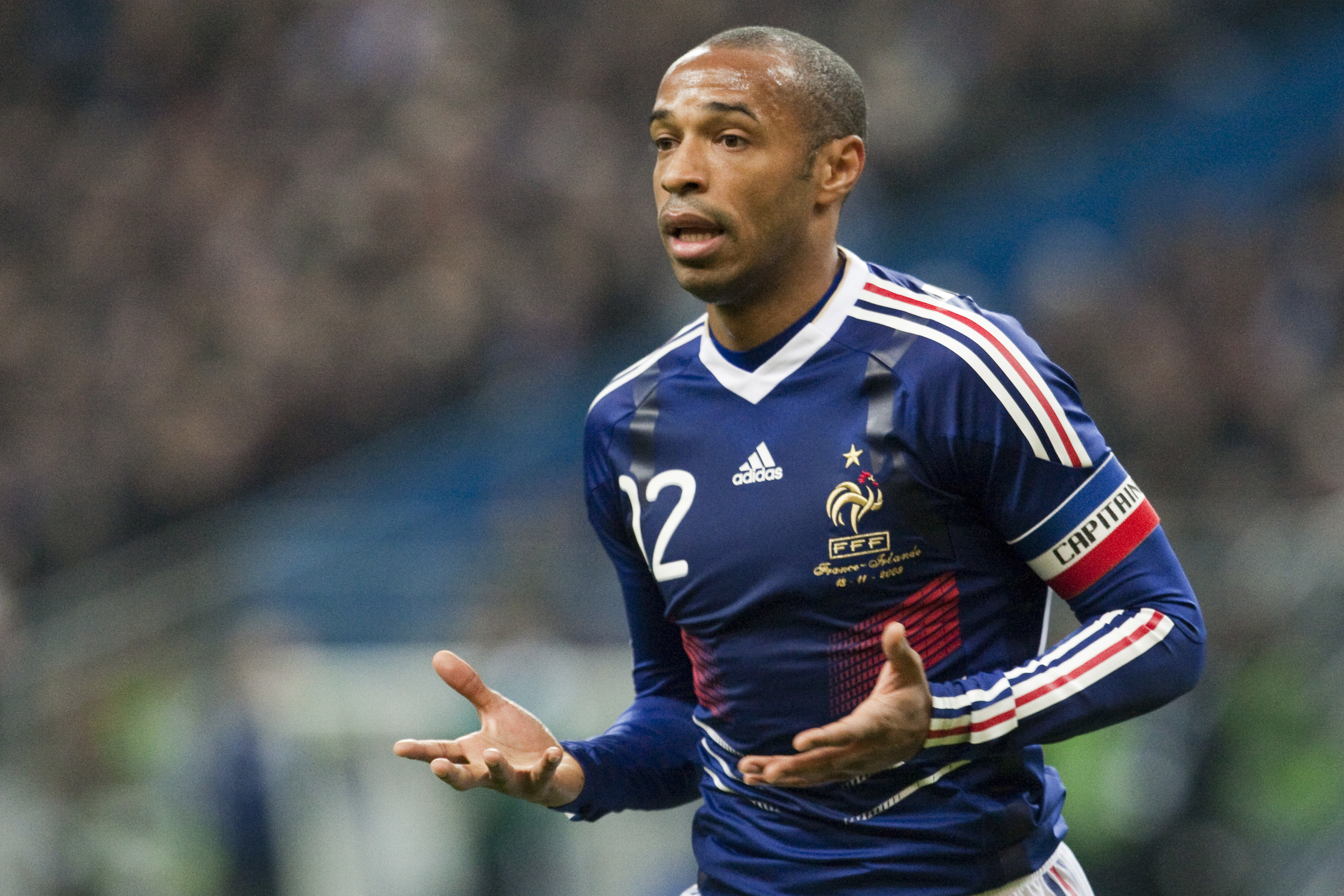
France beat the Republic of Ireland 2-1 on aggregate in the teams' World Cup play-off tie in November 2009 to advance to the tournament in South Africa the following year.
Robbie Keane's goal in the second leg had taken the tie to extra time. In the 113th minute, Thierry Henry then twice used his hand to control a ball from Florent Malouda at the far post and direct it into the path of William Gallas to score the winner. Ireland asked for a replay and even appealed to play the World Cup as "a 33rd team", but FIFA said no. Needless to say, Henry is not very popular in Ireland.
5. Paolo Di Canio
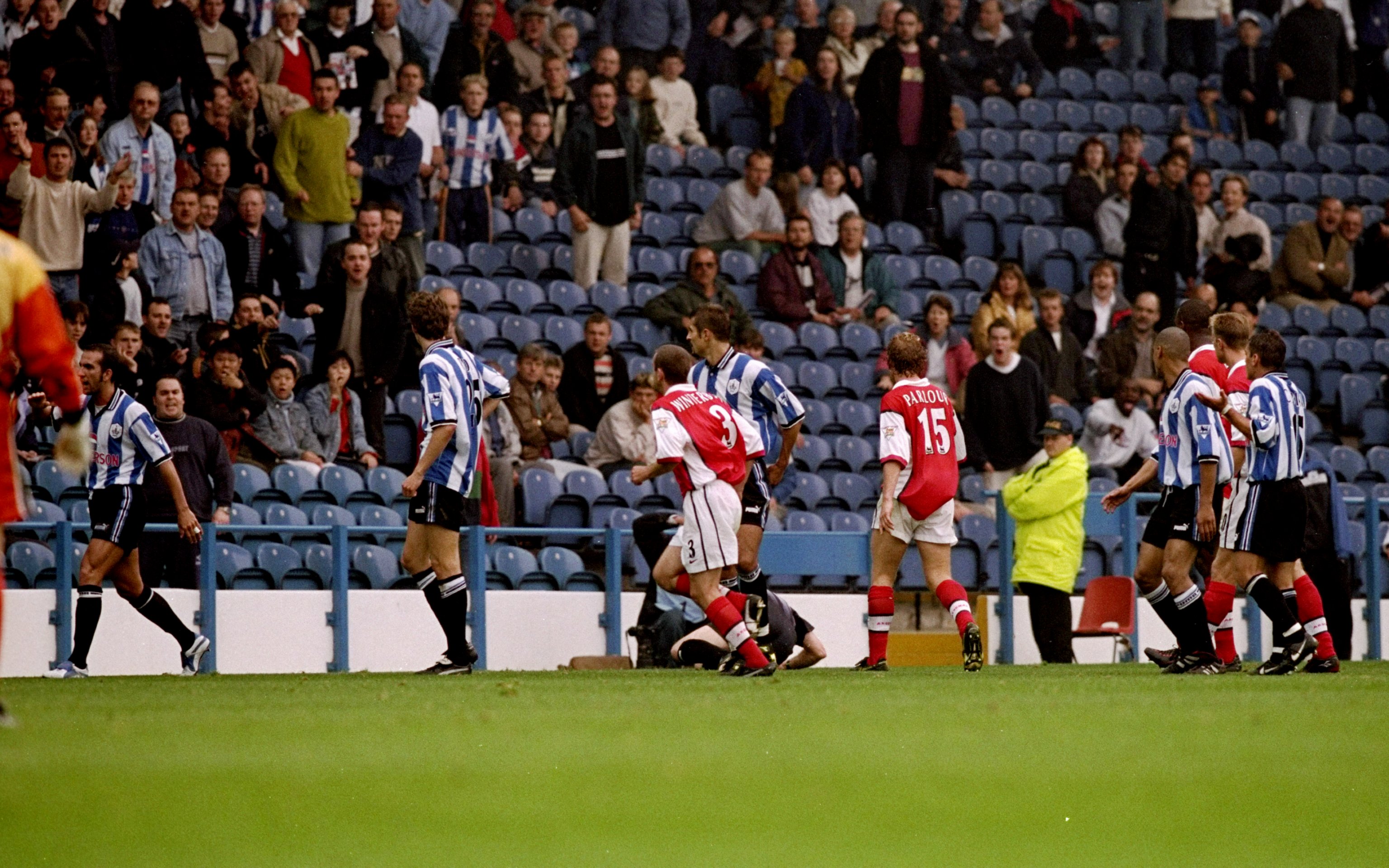
Paolo Di Canio produced one of the most infamous moments in Premier League history when he pushed referee Paul Alcock to the ground in Sheffield Wednesday's game against Arsenal in September 1998.
Following an ugly skirmish between the two sets of players, Di Canio was shown the red card by Alcock and pushed the official, who stumbled and eventually fell to the ground in comical fashion. The Italian was banned for 11 games.
4. Zinedine Zidane
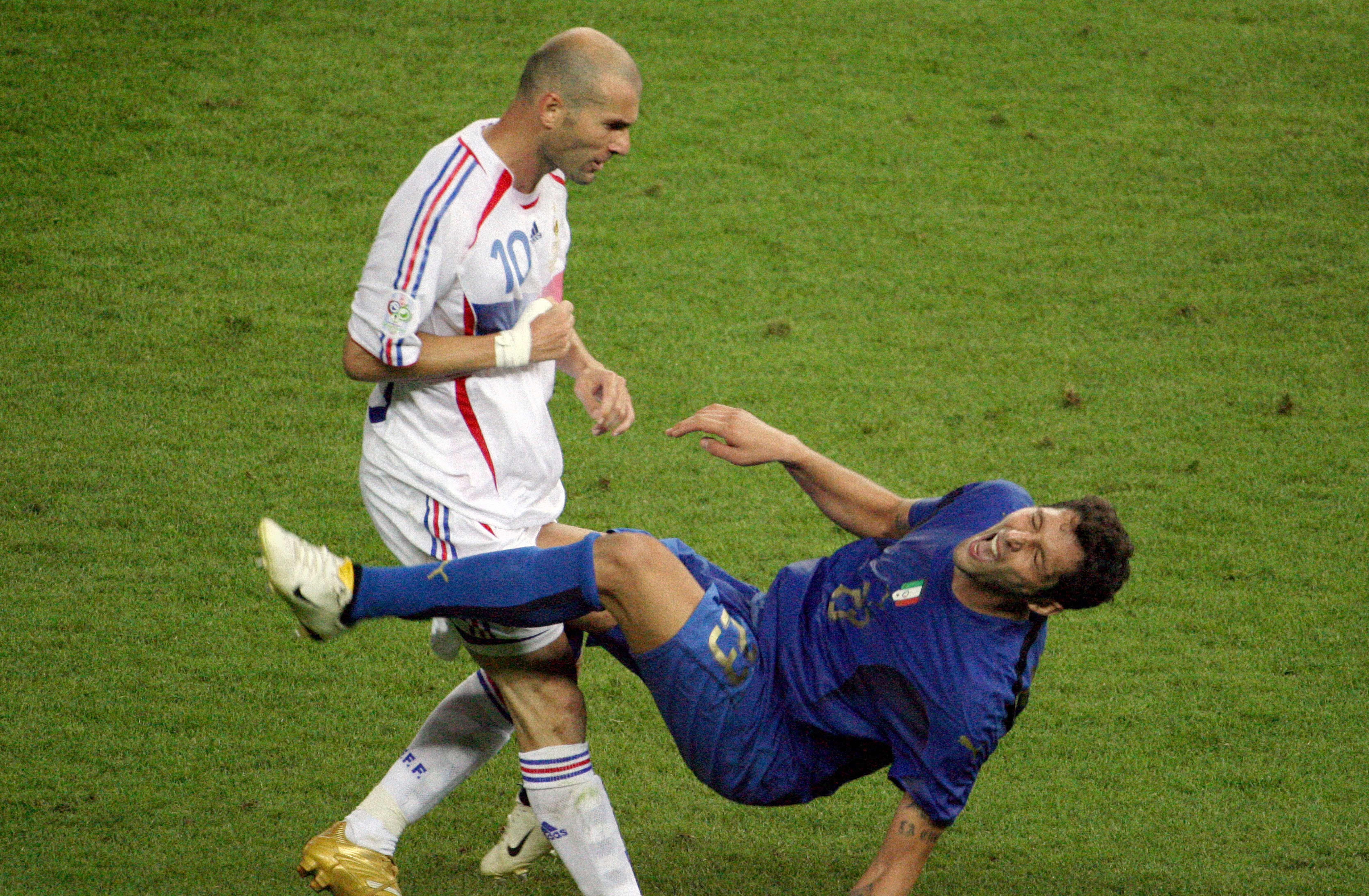
The 2006 World Cup final was finely poised at 1-1 with 10 minutes of extra time remaining when something extraordinary happened – France captain Zinedine Zidane floored Italy defender with a brutal headbutt in the chest.
Zidane was sent off and Italy went on to win on penalties. It was his last match for France and the final moment of his wonderful career. Speaking afterwards, he revealed he had been persistently provoked by Materazzi, but went on to apologise to "all children and everyone who saw the act."
3. Eric Cantona
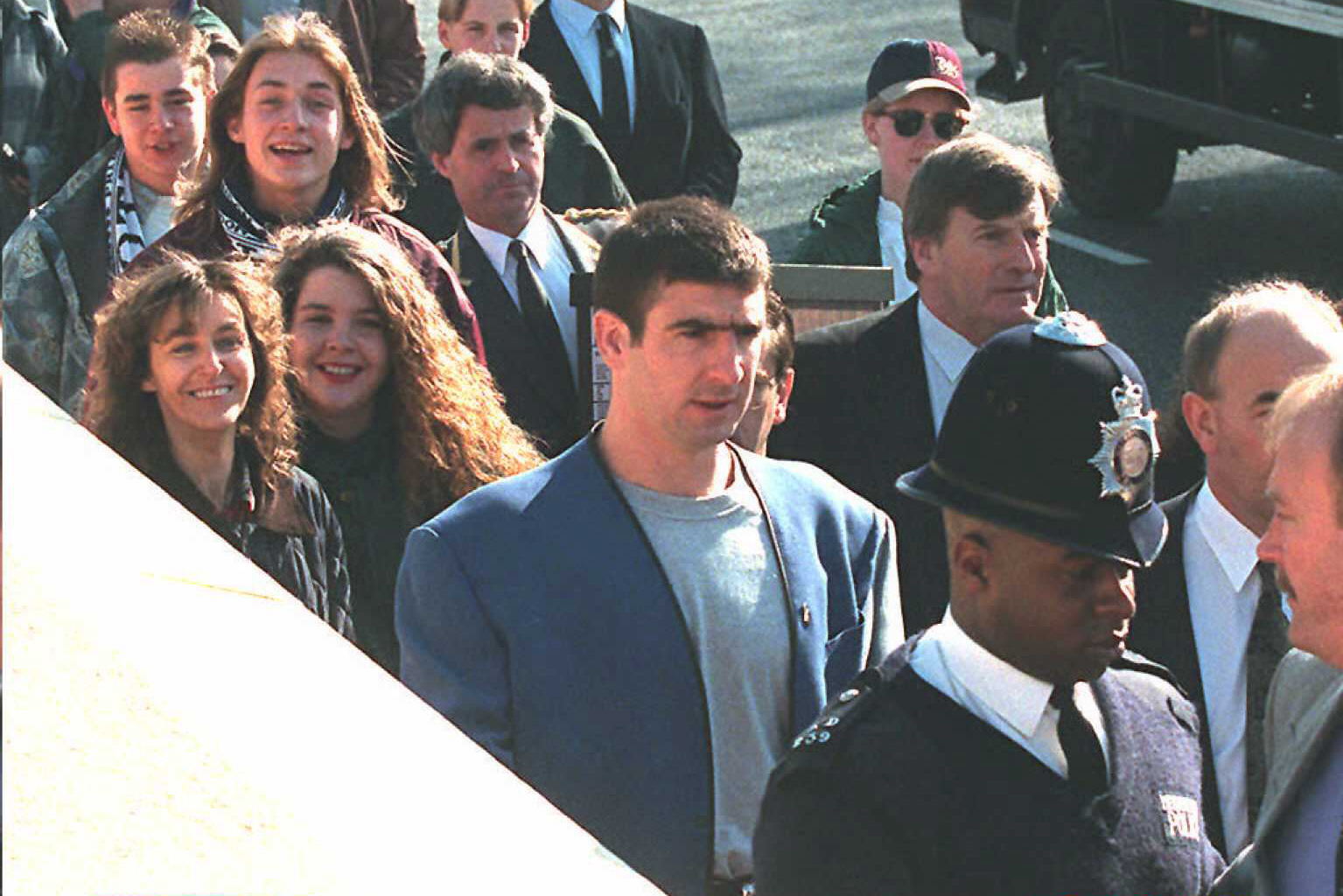
Eric Cantona was banned for nine months in 1995 after launching himself at a Crystal Palace fan and connecting with a "kung fu" kick in Manchester United's match at Selhurst Park in January 1995.
Cantona had been hit with a barrage of xenophobic abuse by Palace fan Matthew Simmons and did not play again for the rest of the season. His only regret? "I would have loved to have kicked him even harder," he later said.
2. Luis Suarez
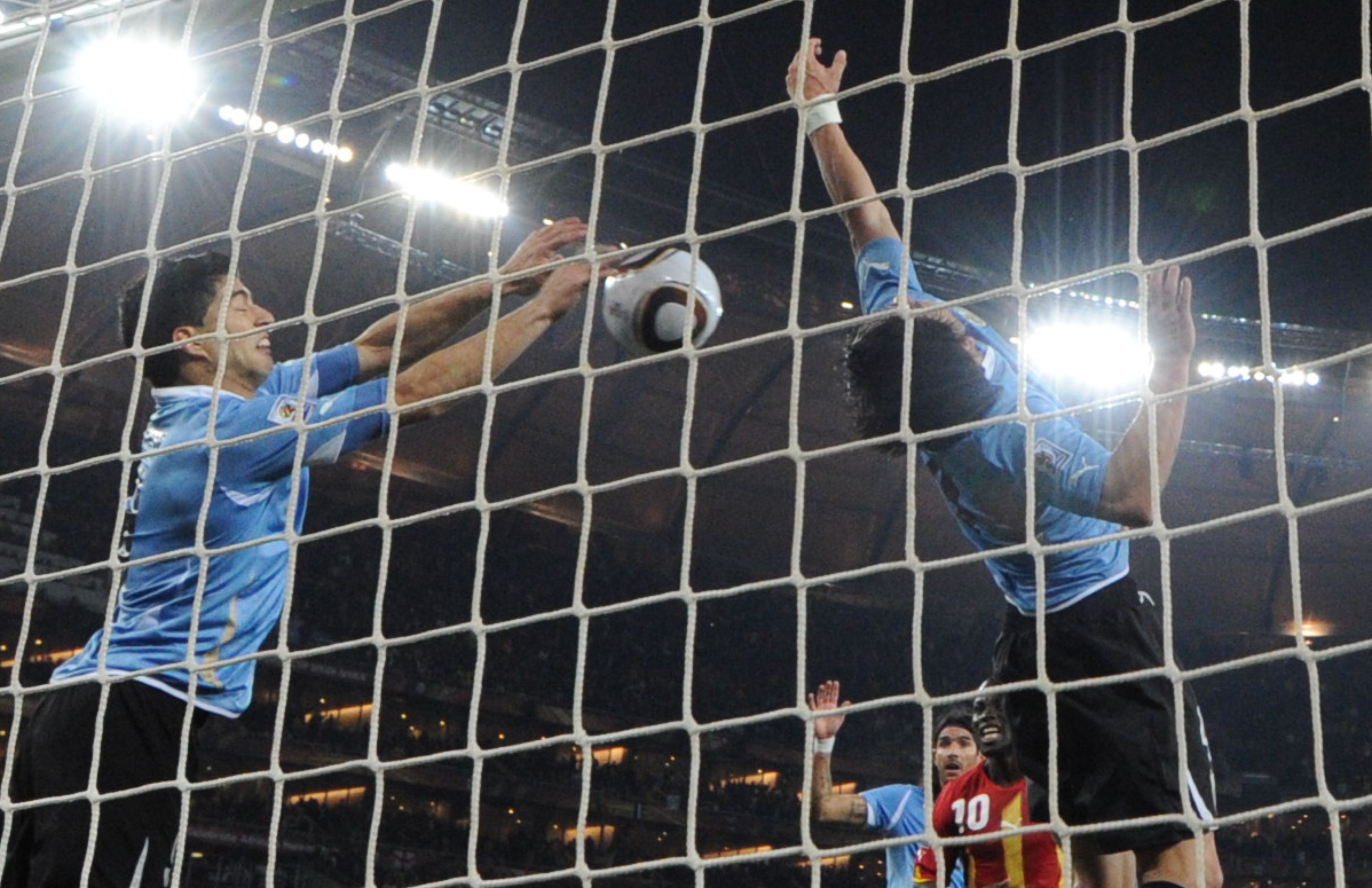
Luis Suarez produced the second-most famous World Cup handball in 2010. The Uruguay striker stopped a certain Ghana goal with his hands and was sent off, but his intervention late in extra time took the quarter-final clash to penalties and the South Americans ended up winning the shootout.
Four years later, Suarez was involved in yet more controversy as he bit Italy's Giorgio Chiellini in a group game at Brazil 2014 and was hit with a four-month ban by FIFA.
1. Diego Maradona
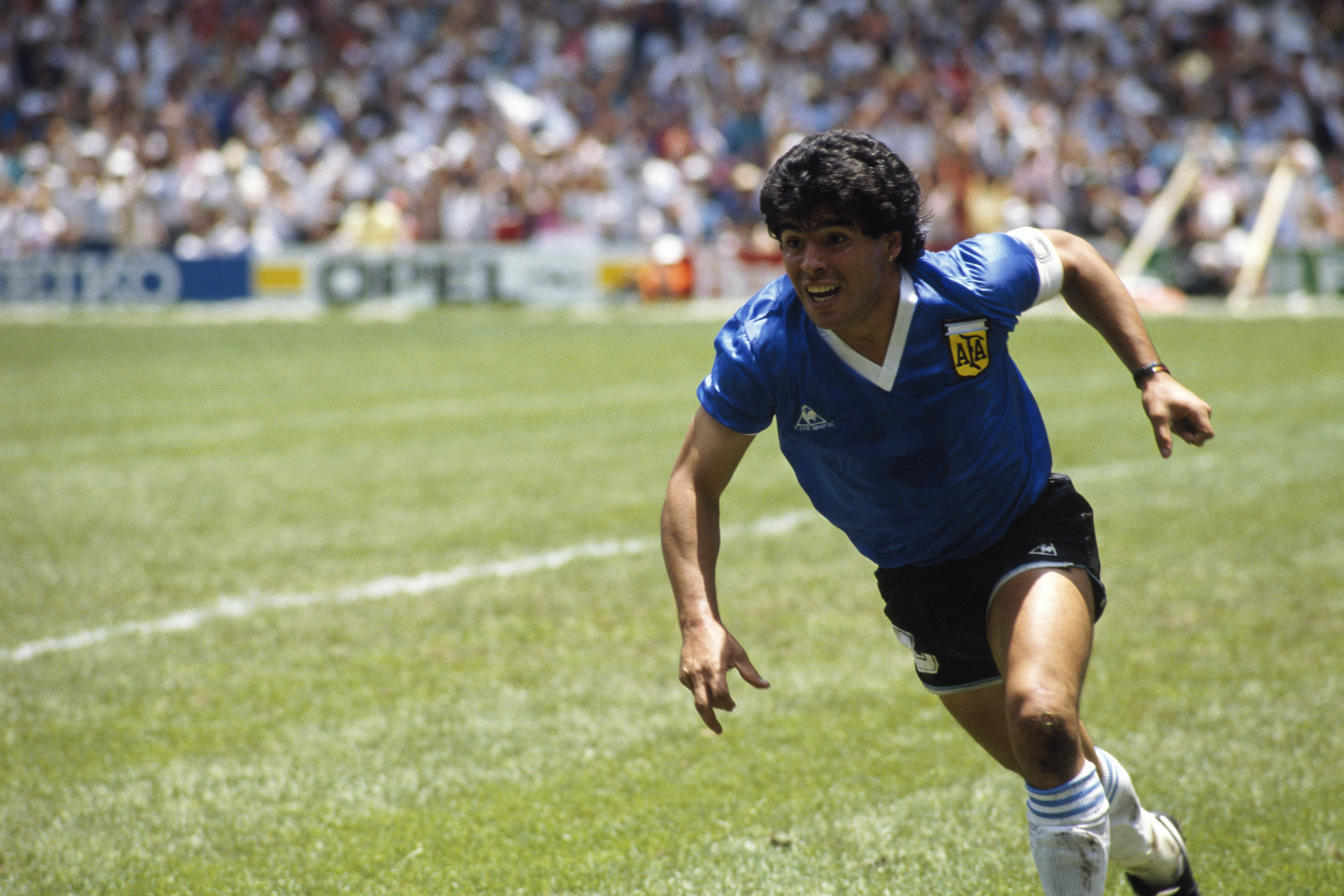
Diego Maradona's handball against England at Mexico 86 set Argentina on their way to World Cup glory and the incident is central to the status and the story of the legendary number 10.
Reacting quickly after a miskick from England's Steve Hodge, Maradona used his hand to beat Peter Shilton to the ball, lifting it over the goalkeeper's head and into the net. After scoring, Maradona urged his team-mates to celebrate with him in order to avoid suspicion. Later, he called it the "Hand of God".







